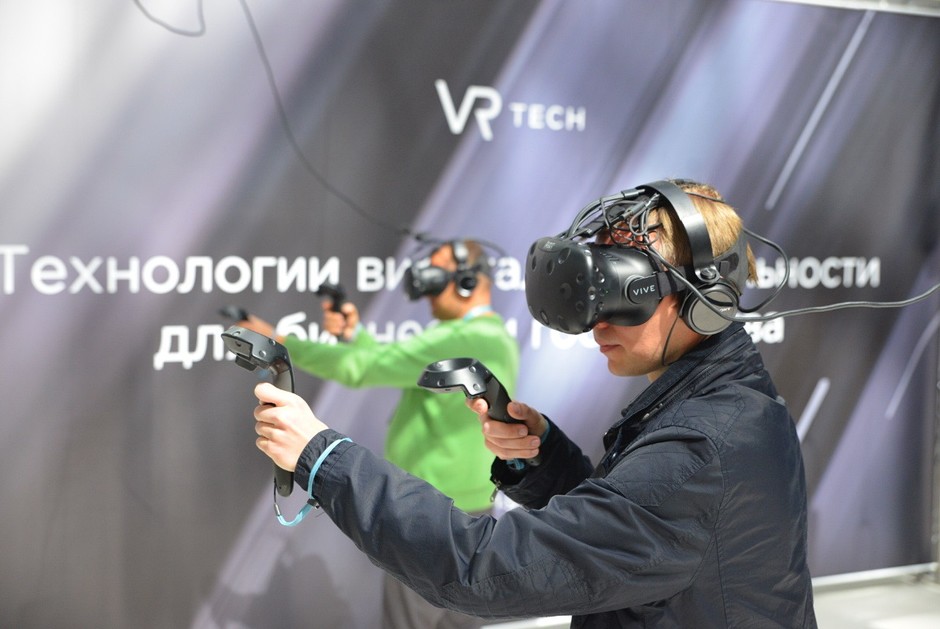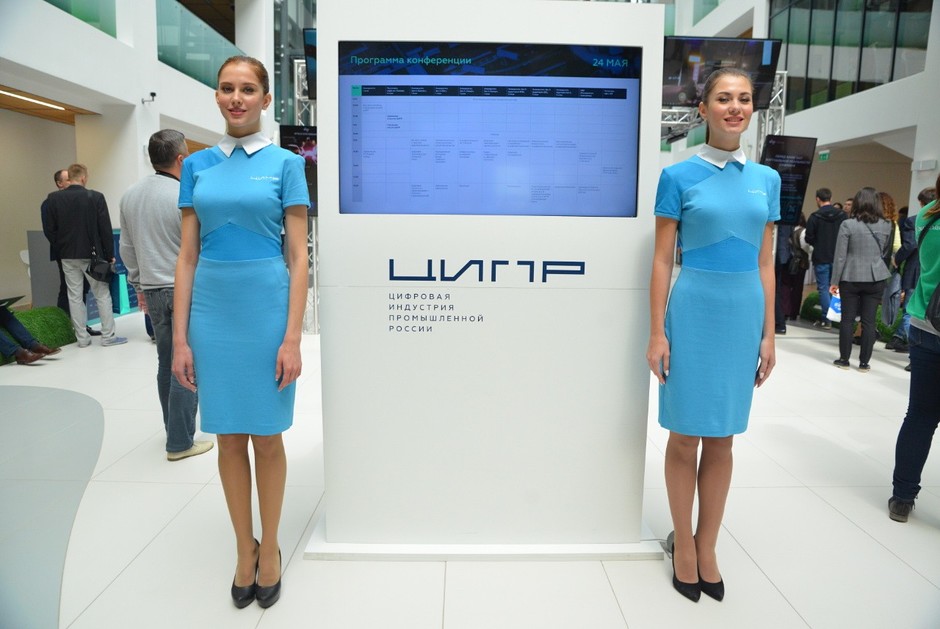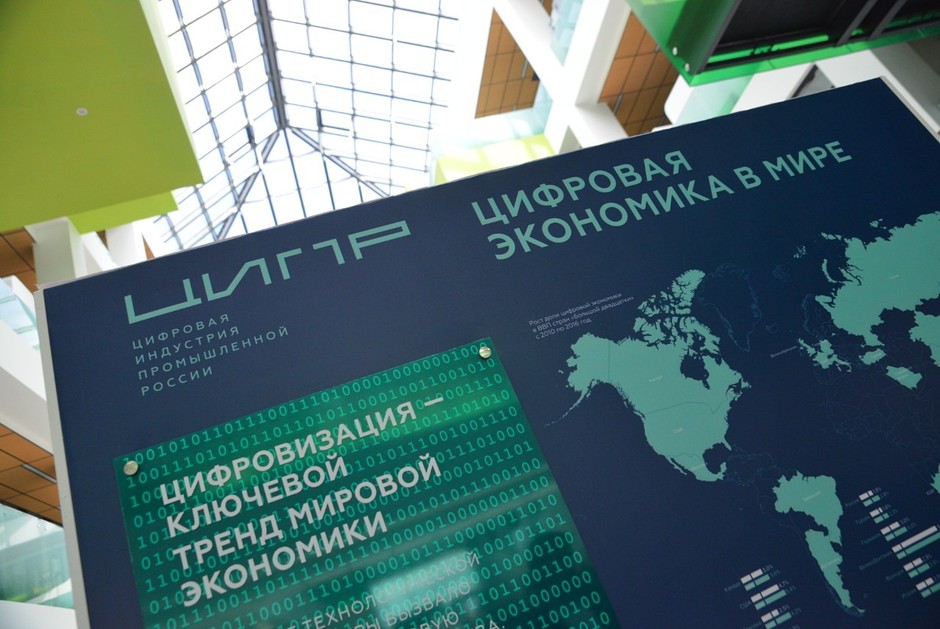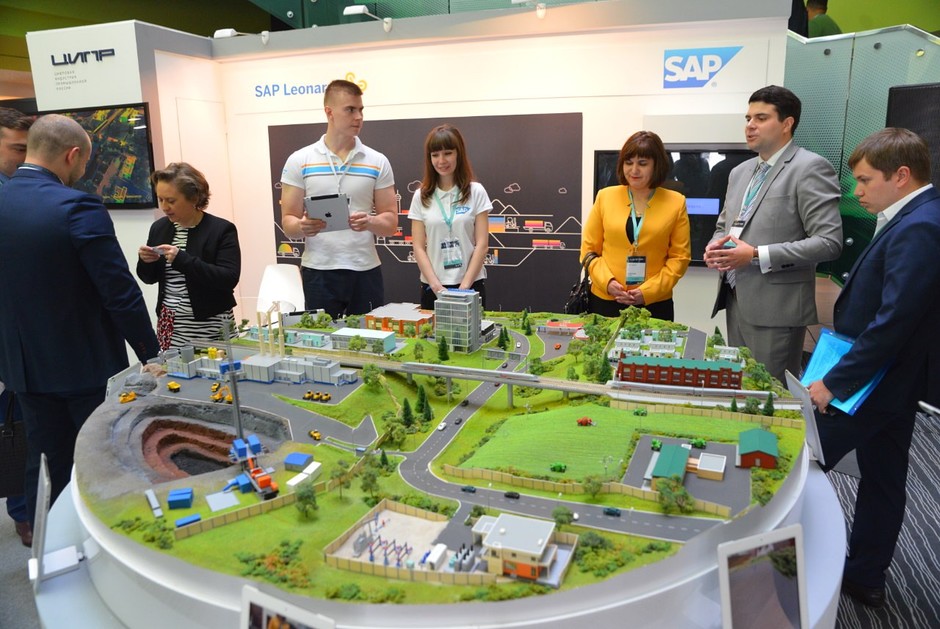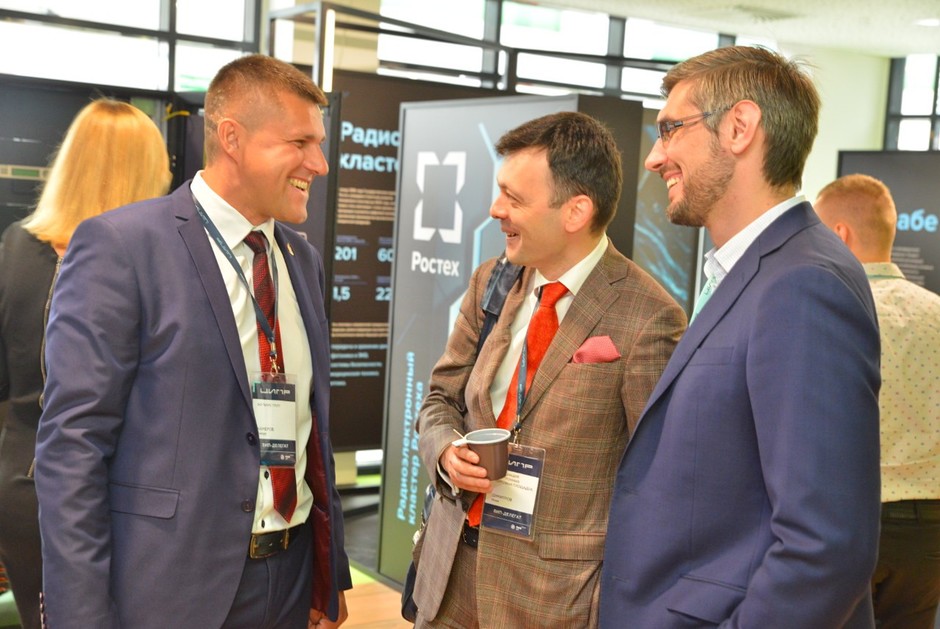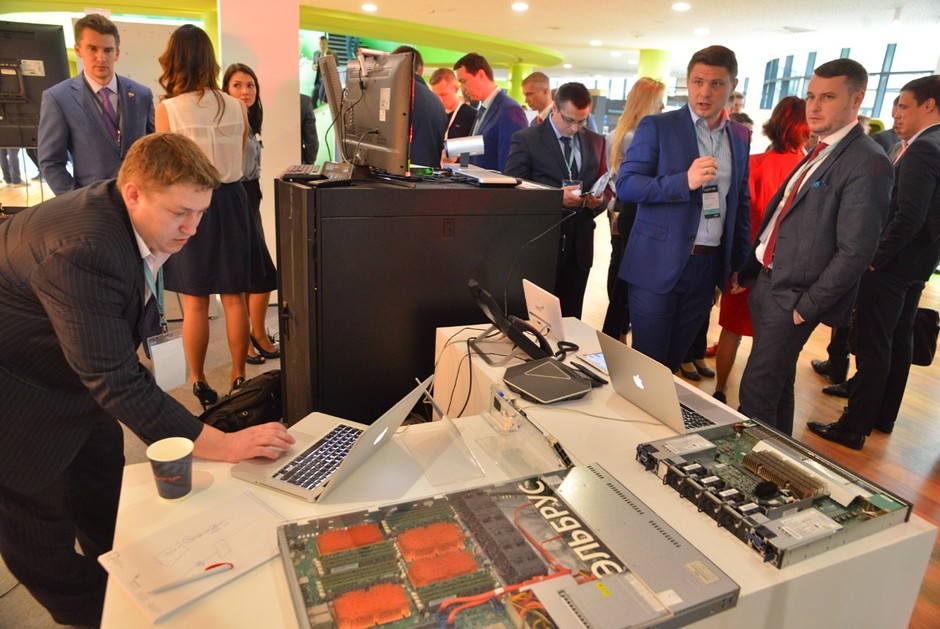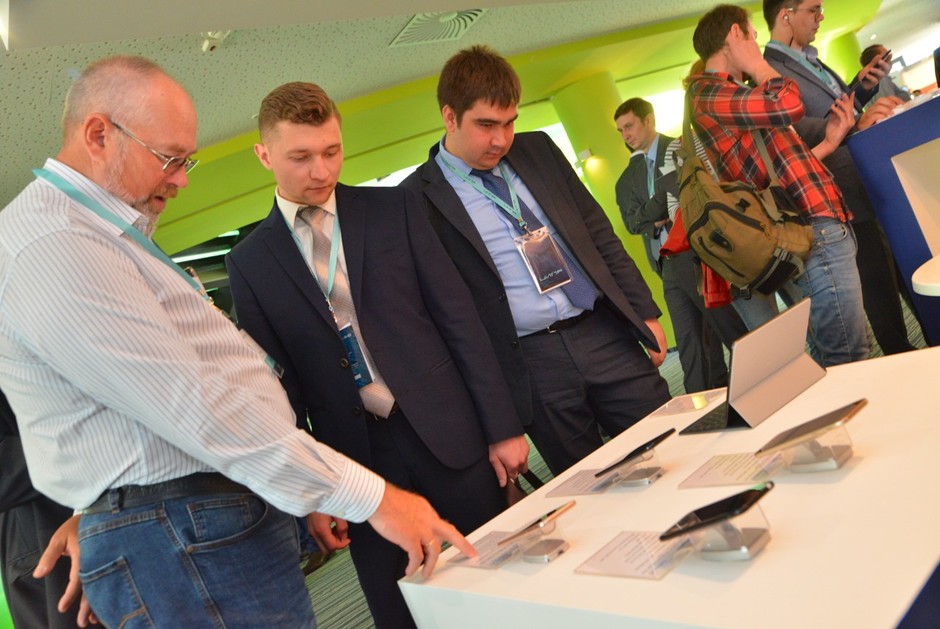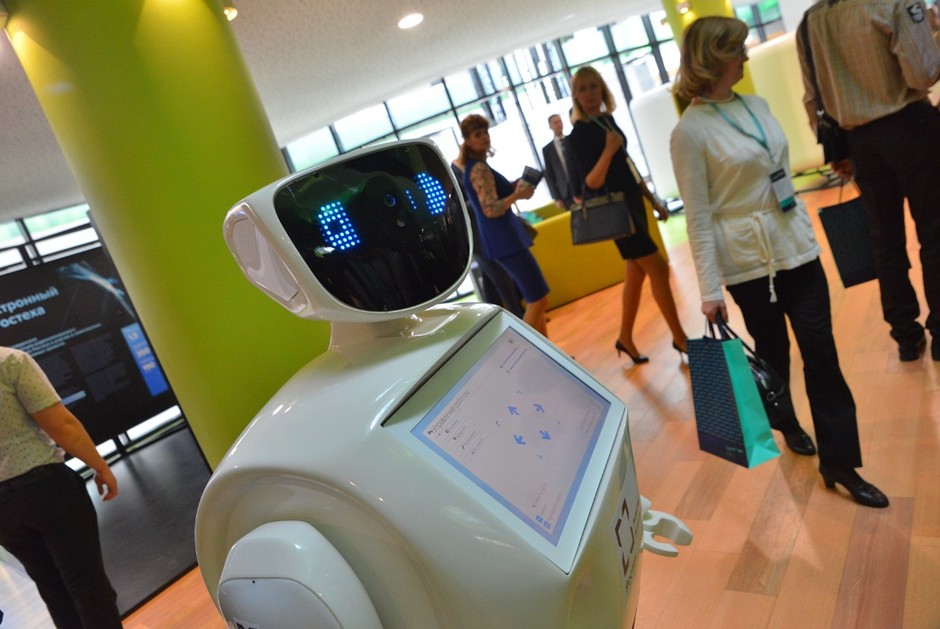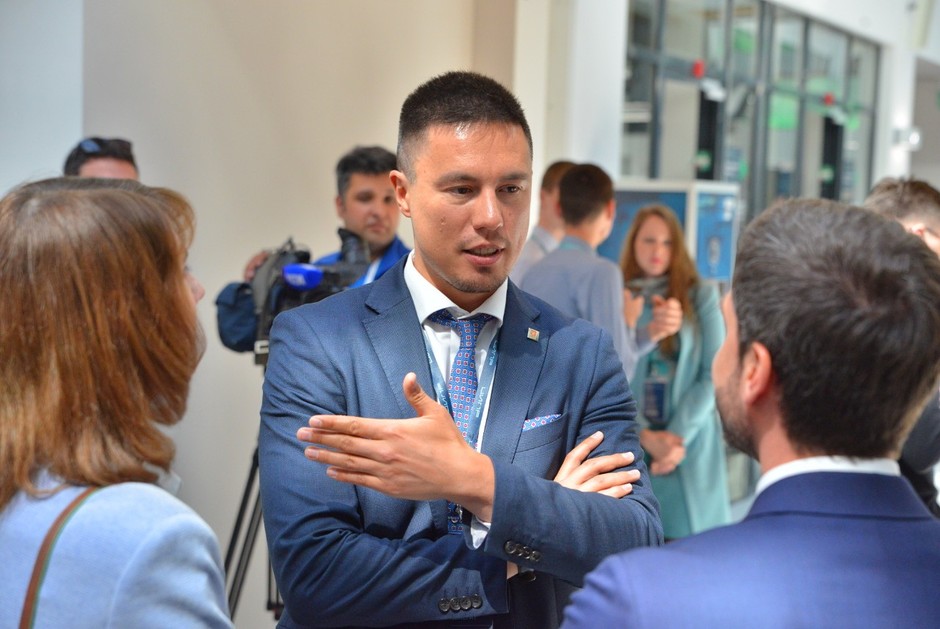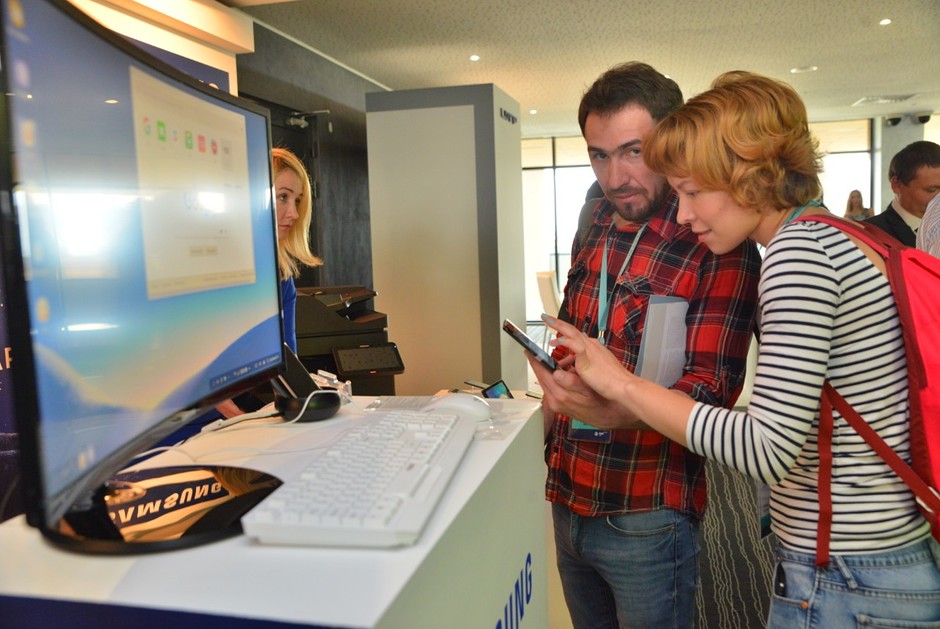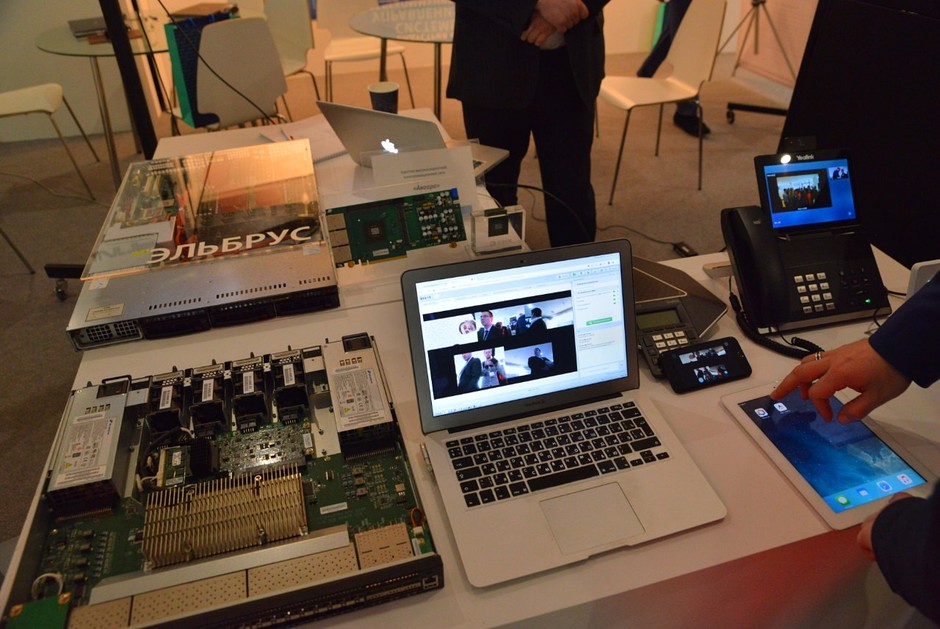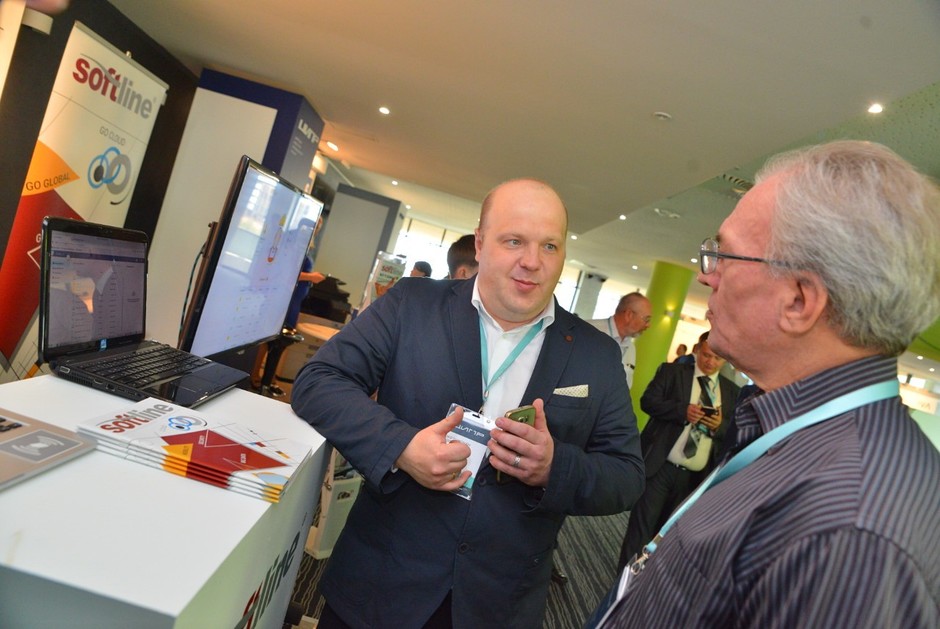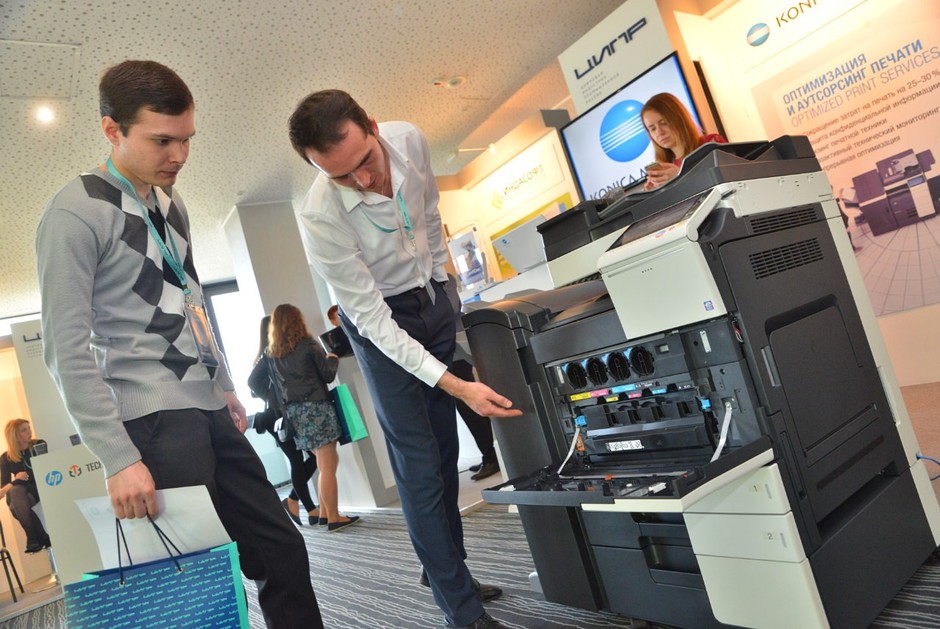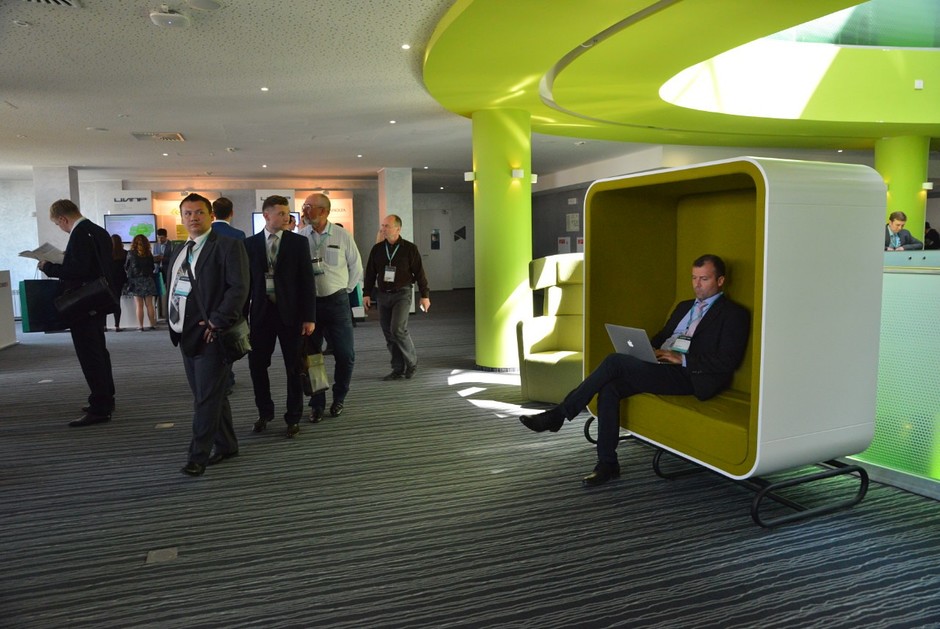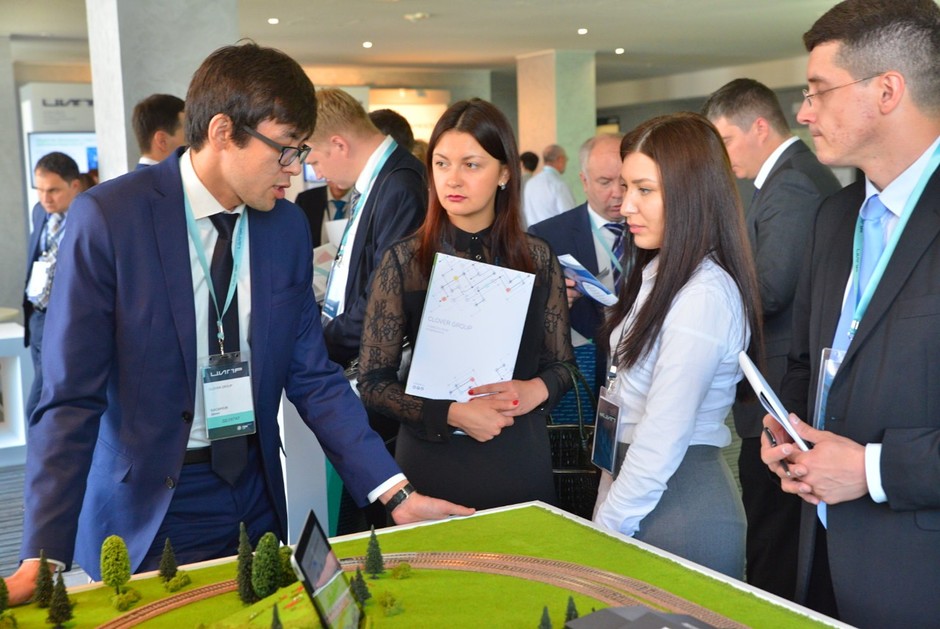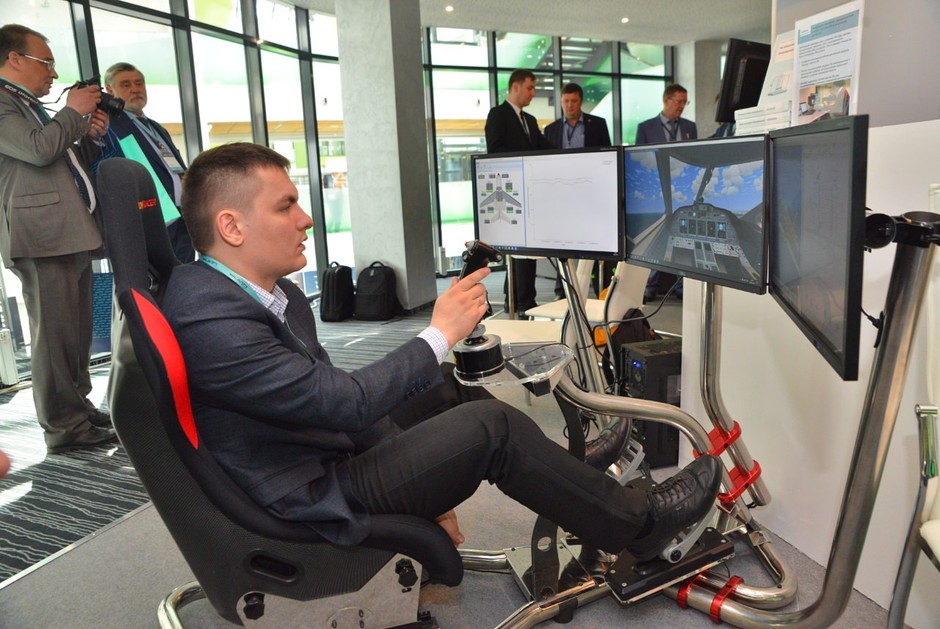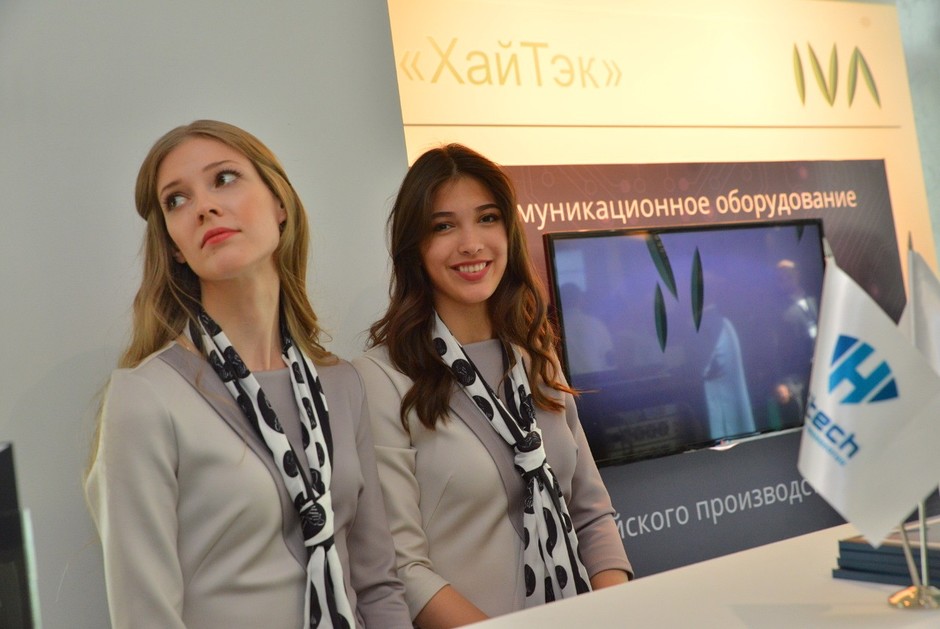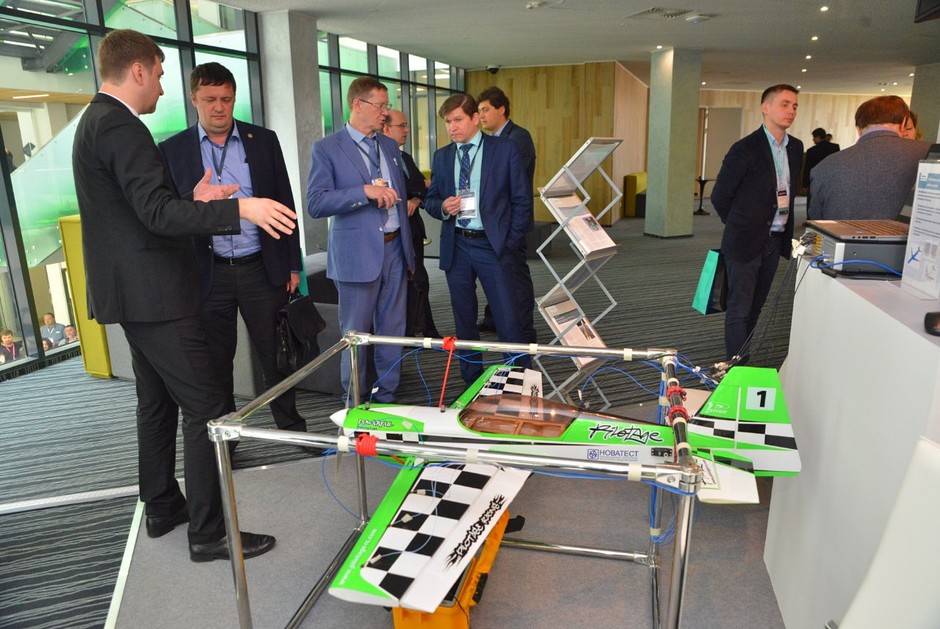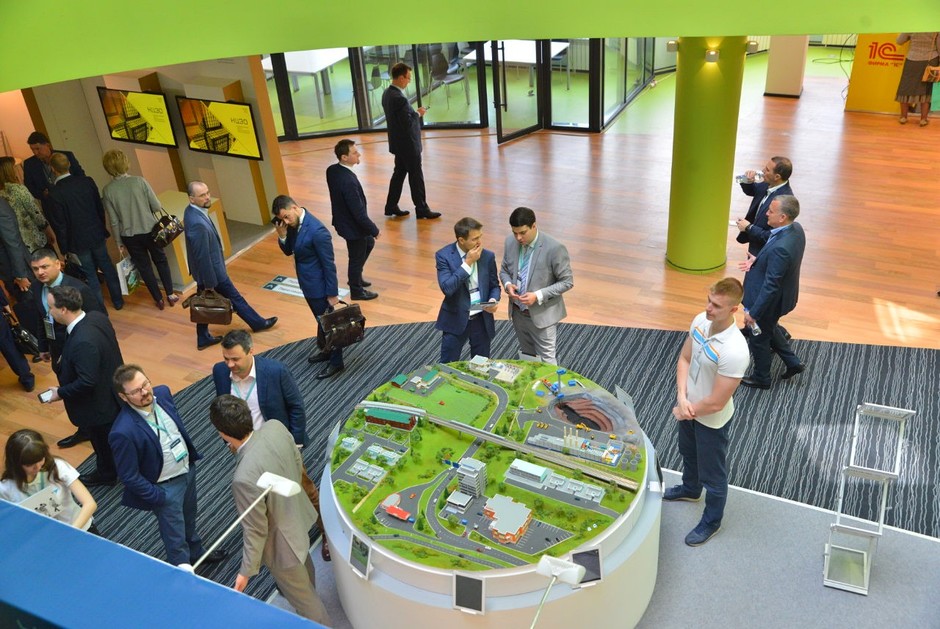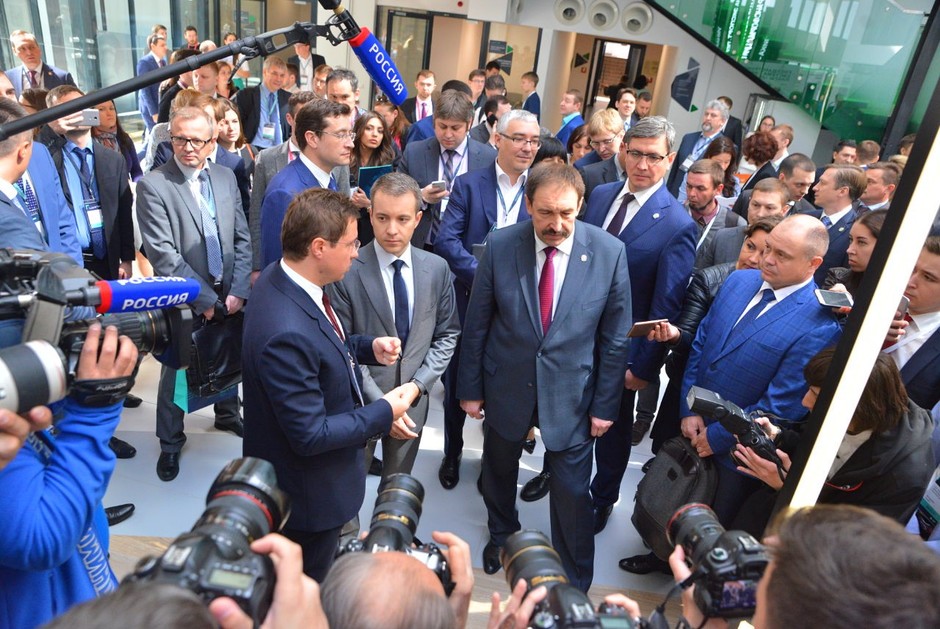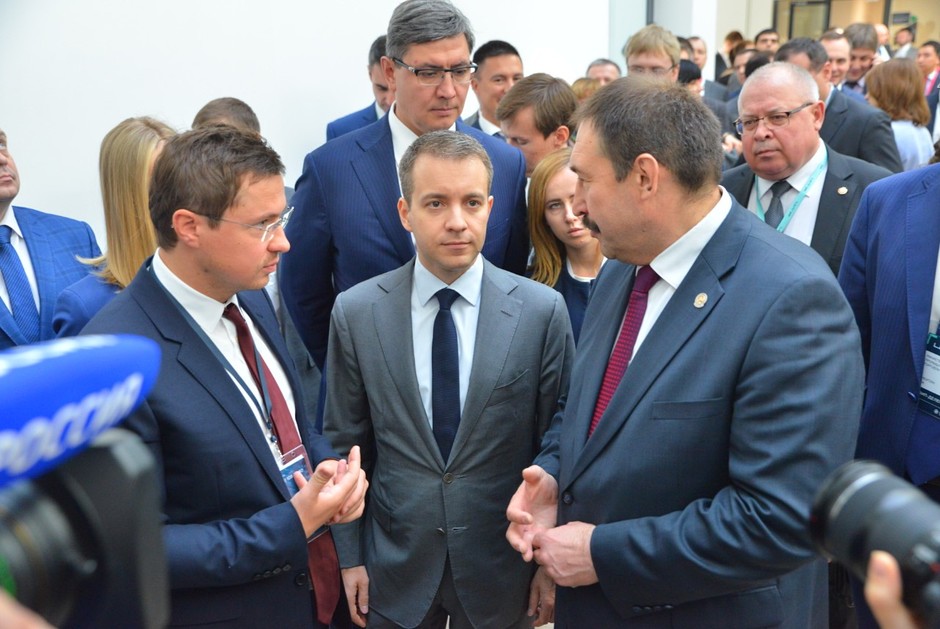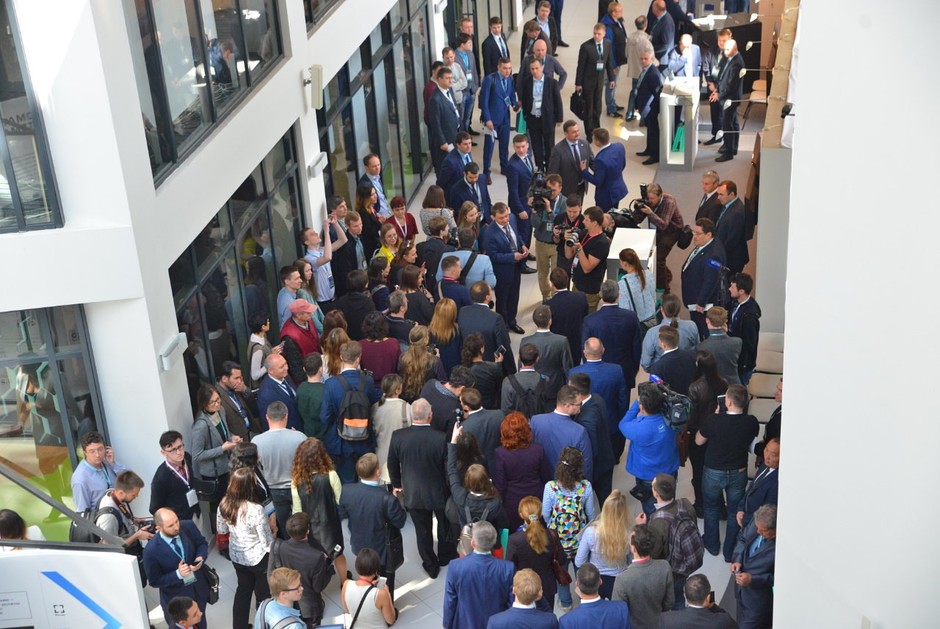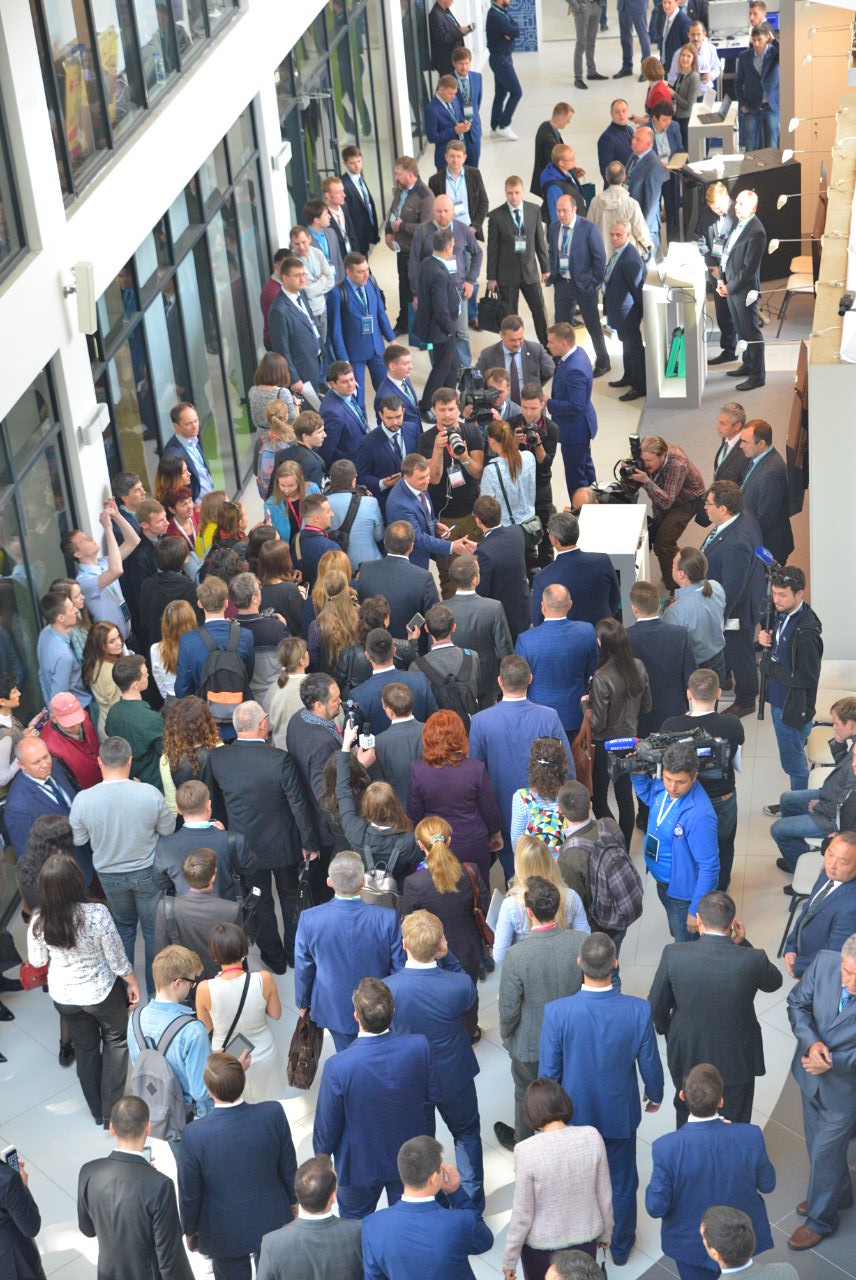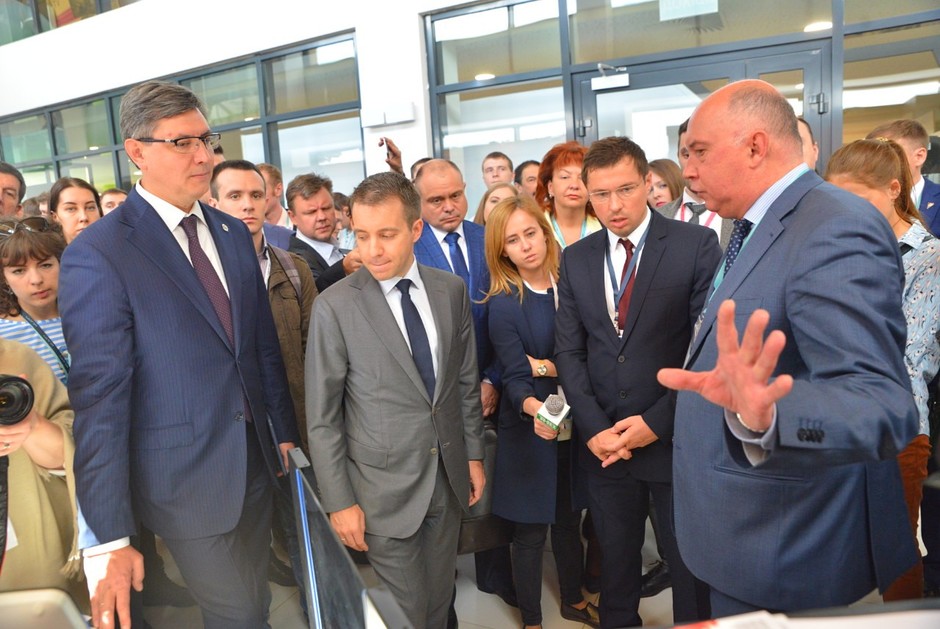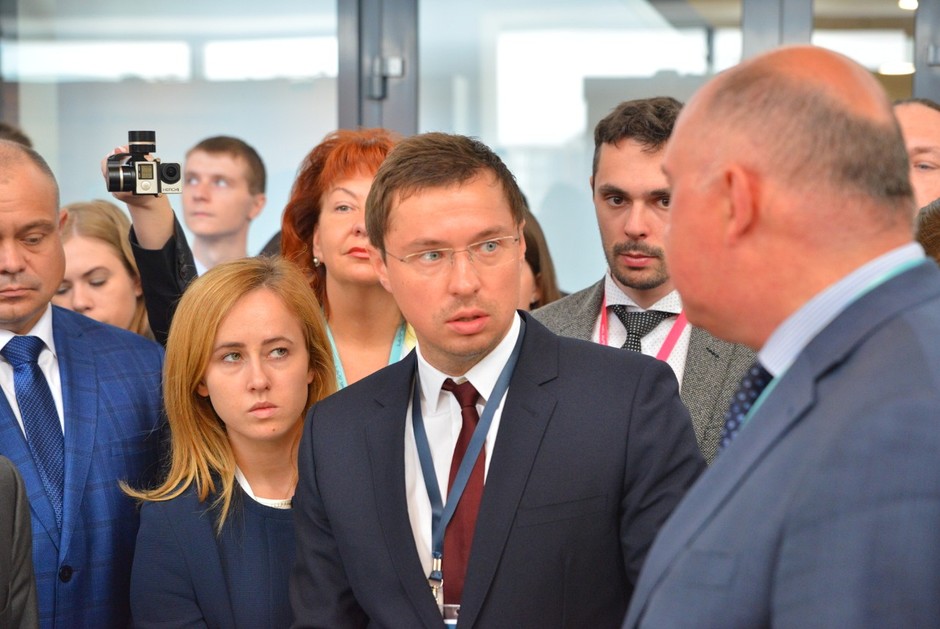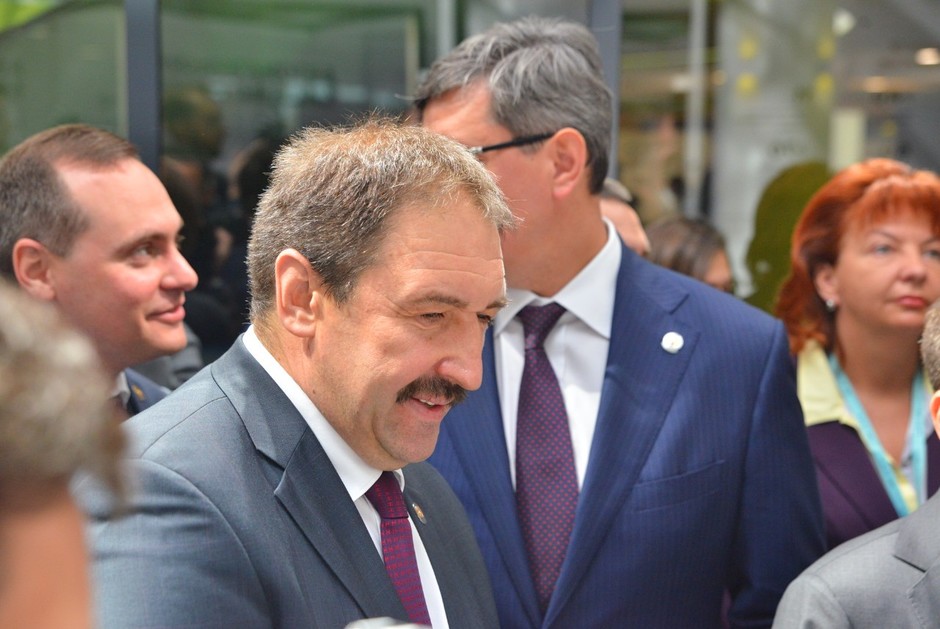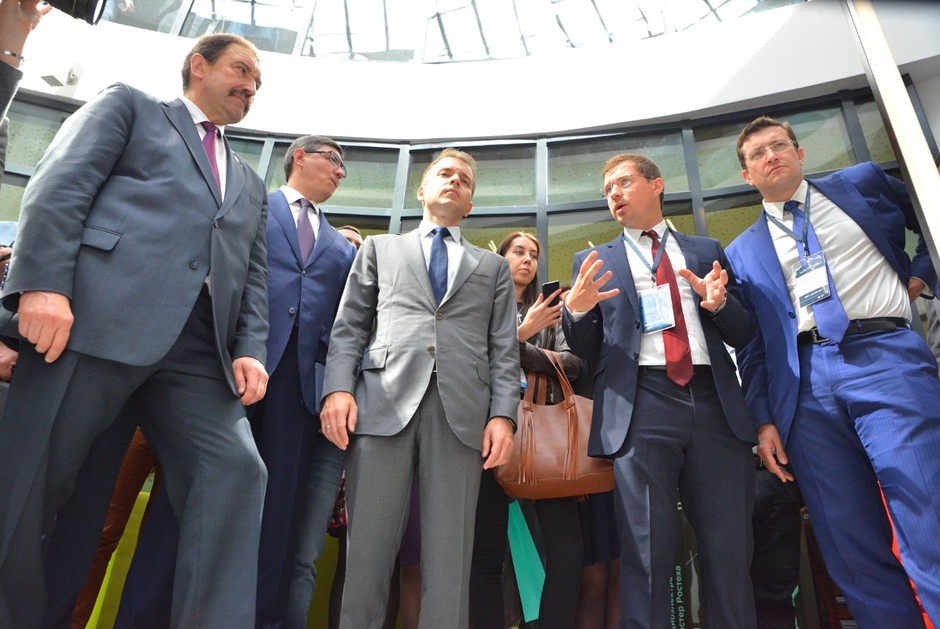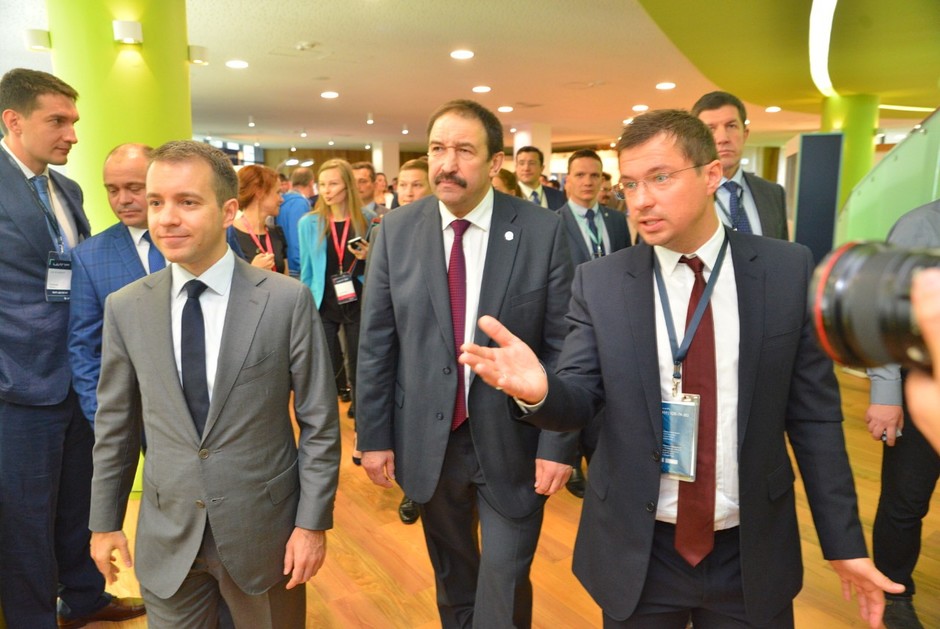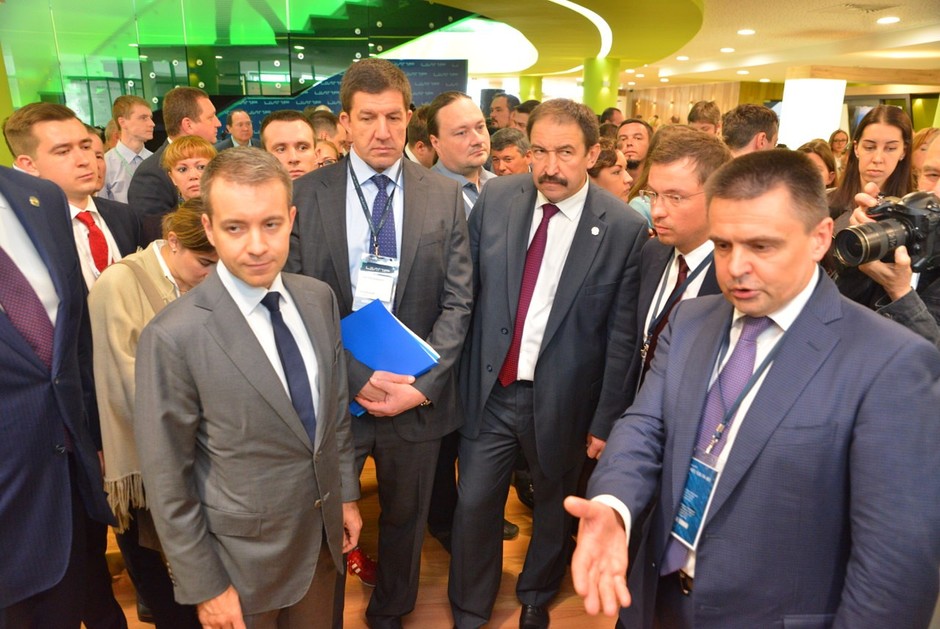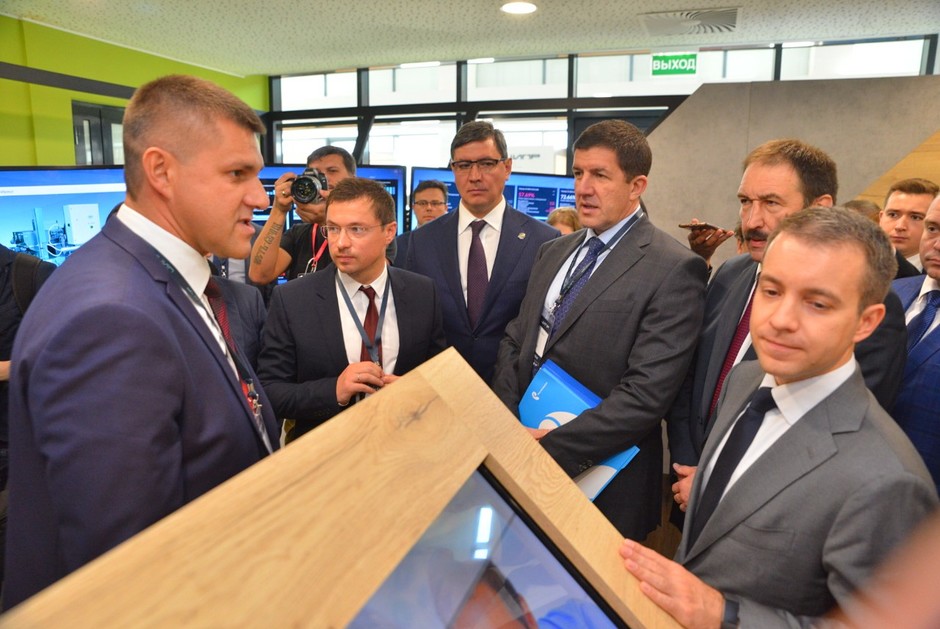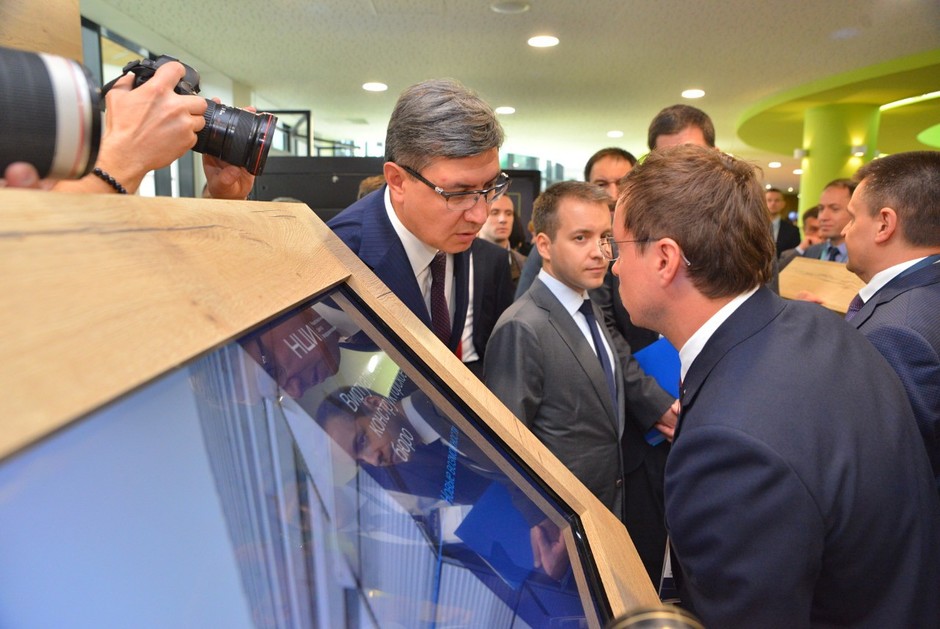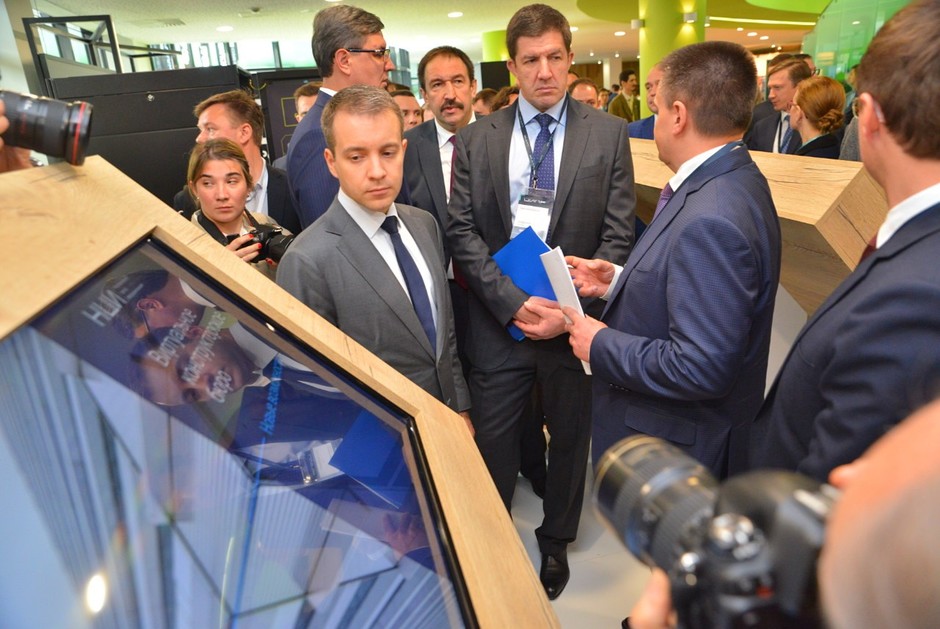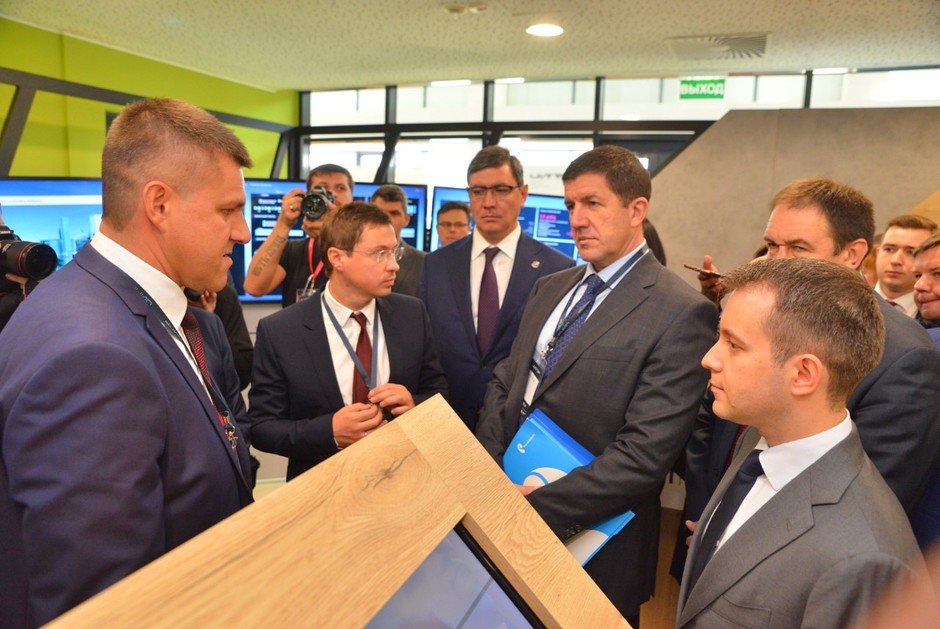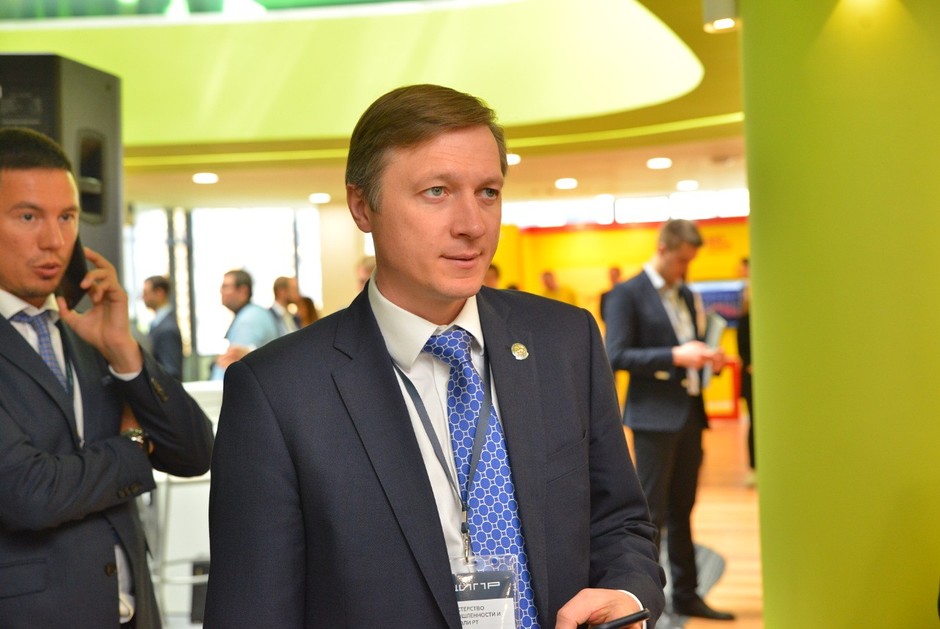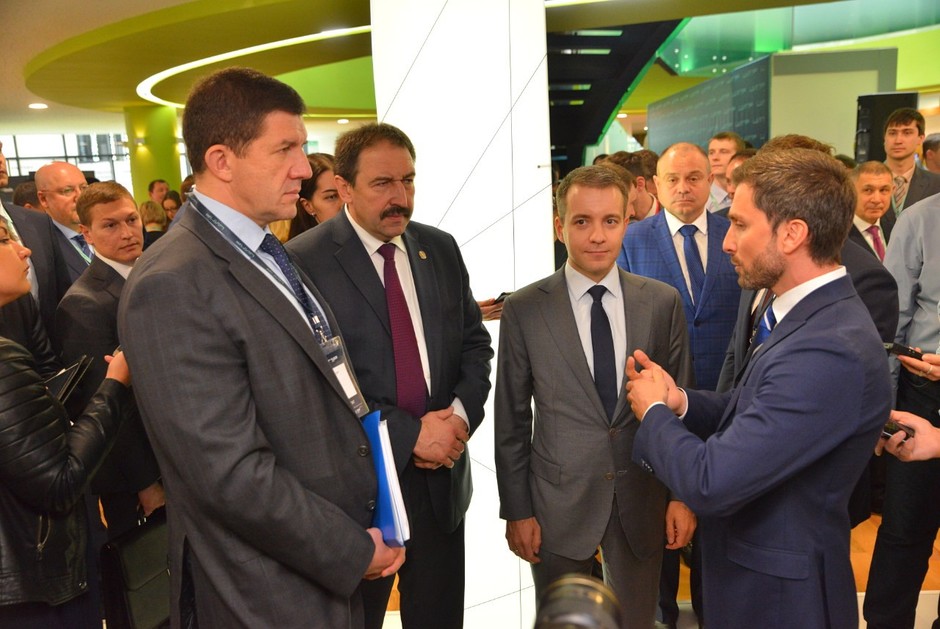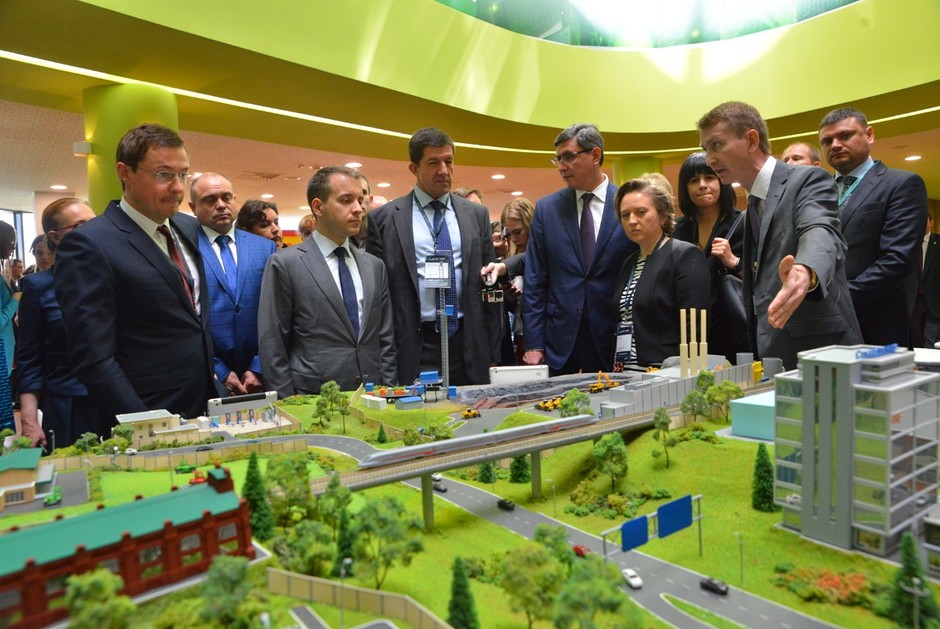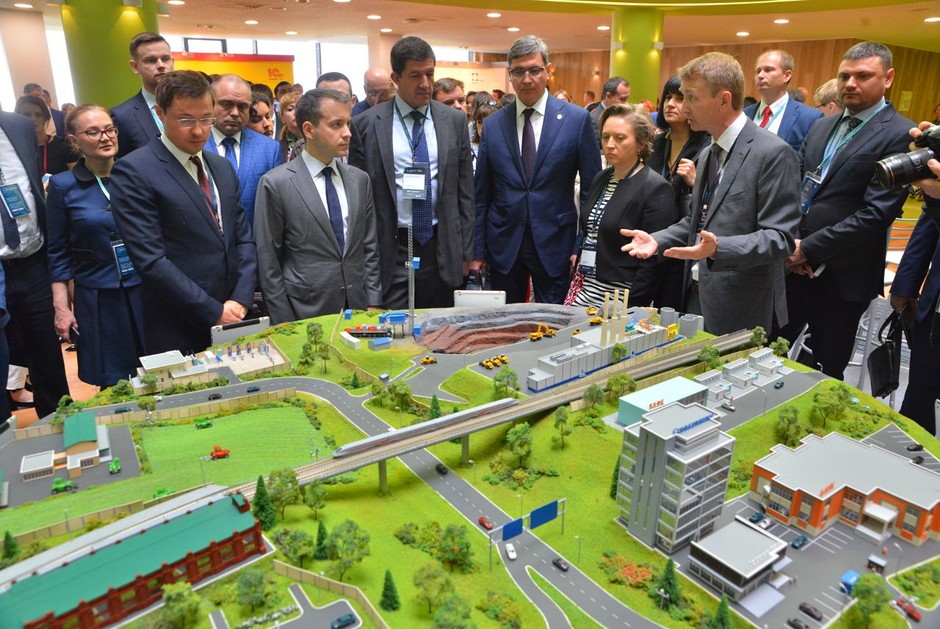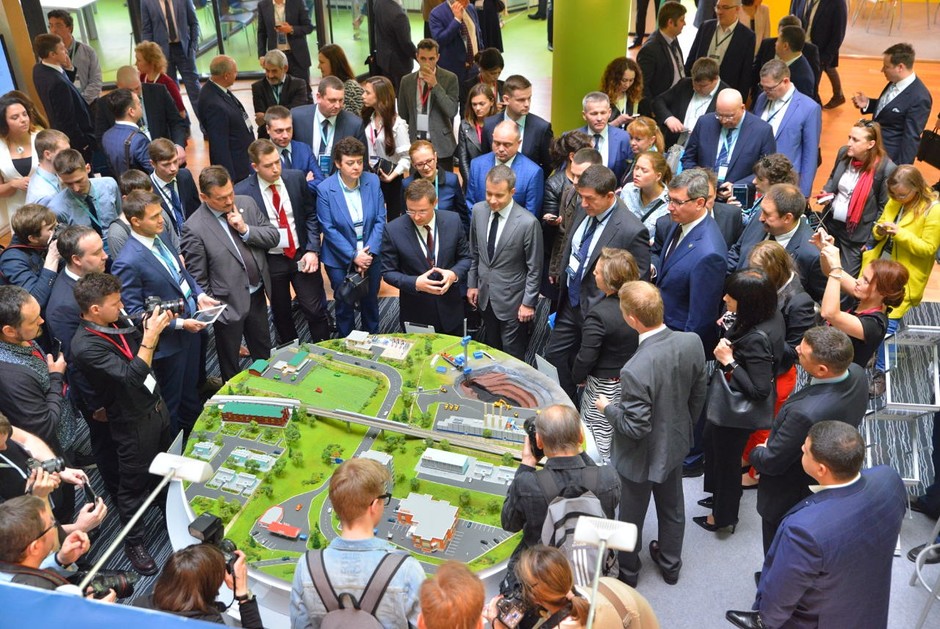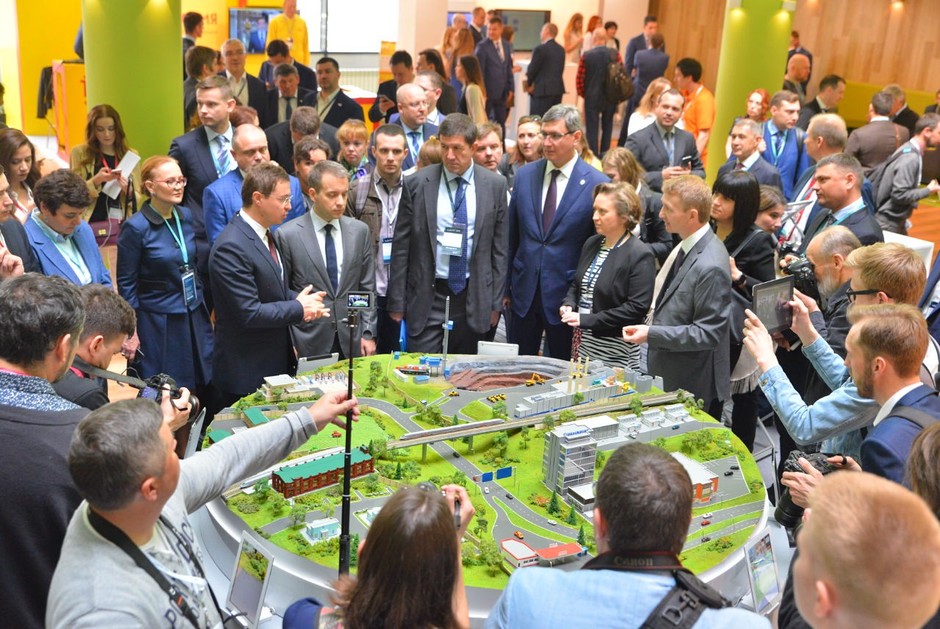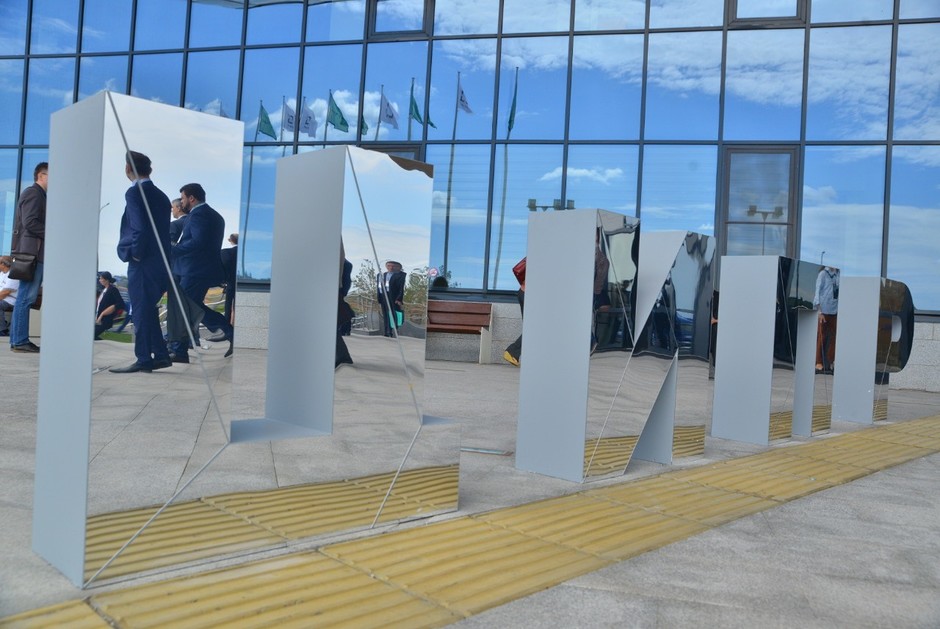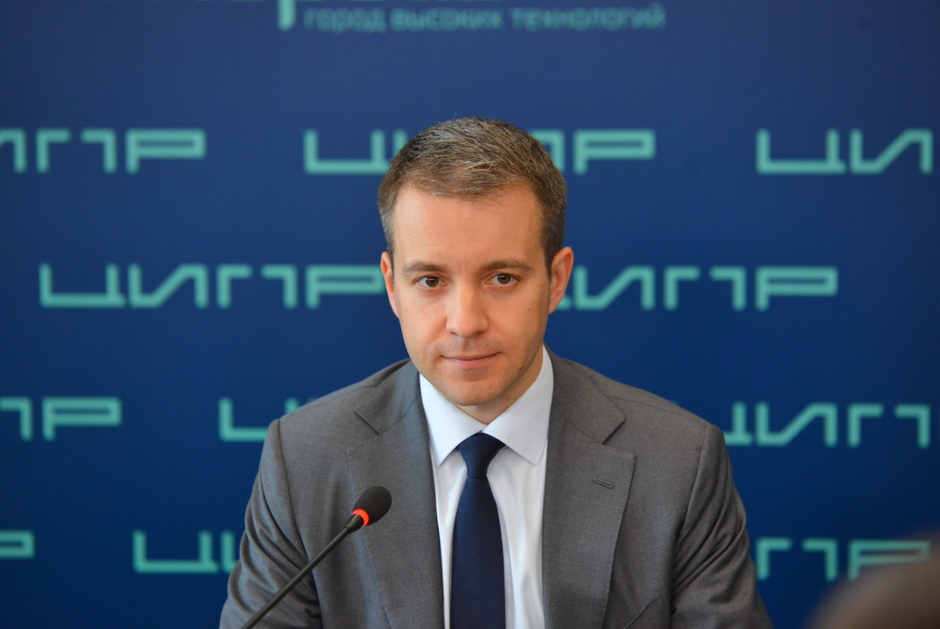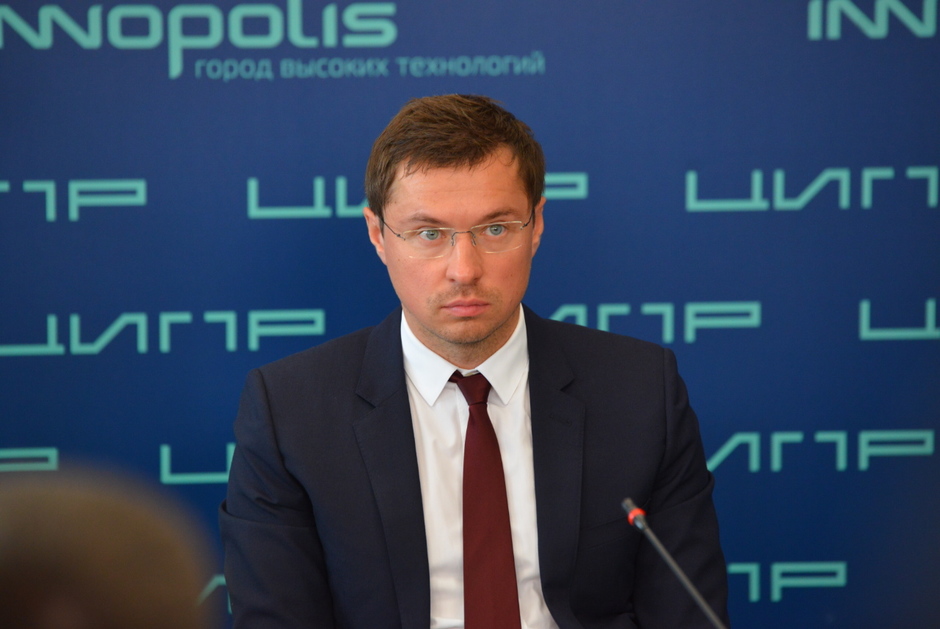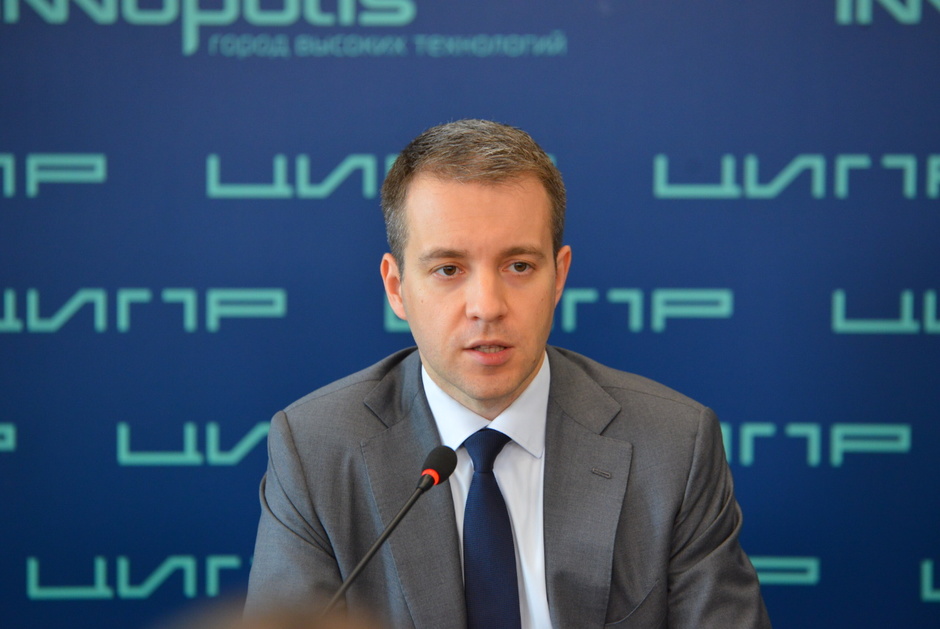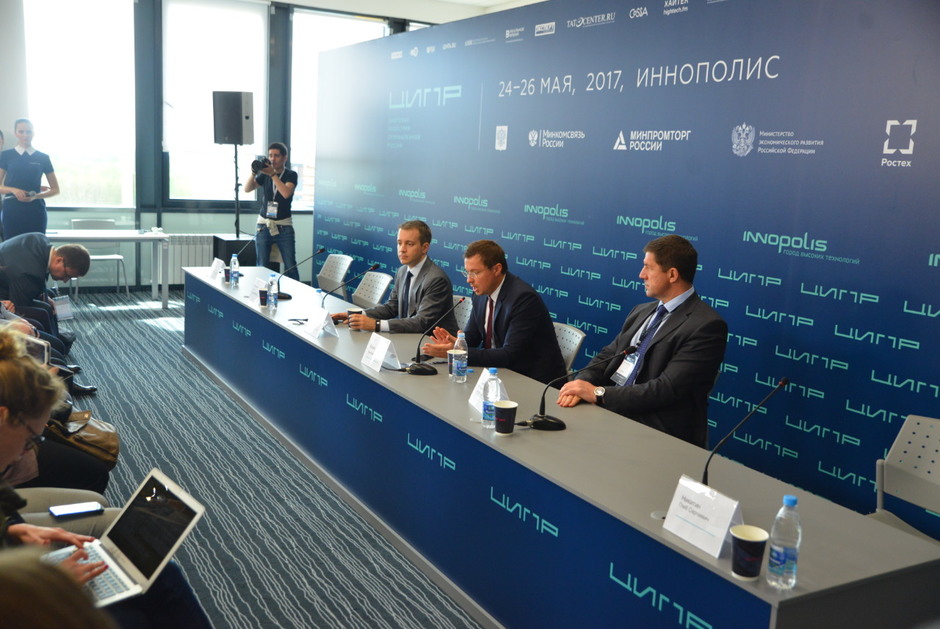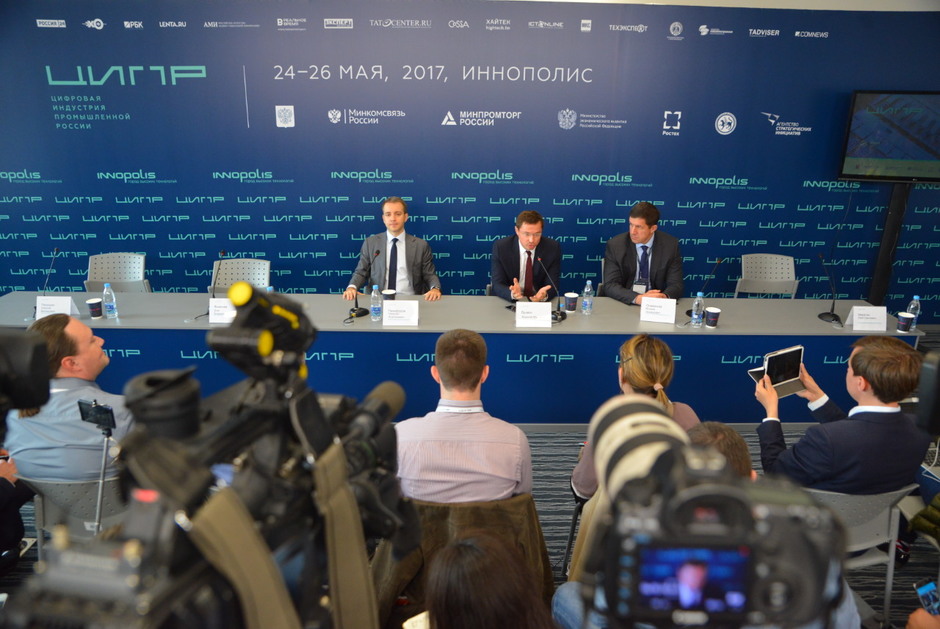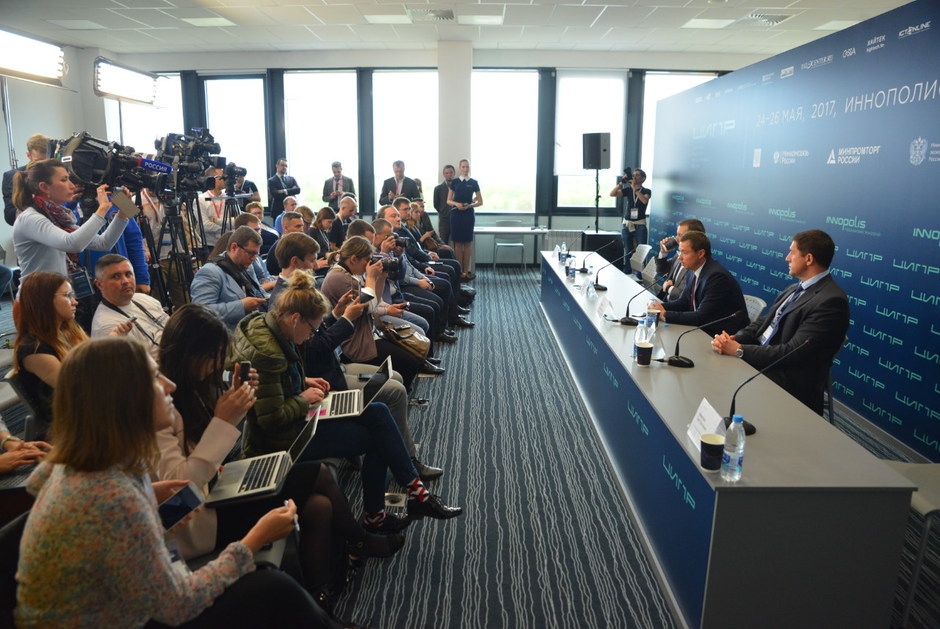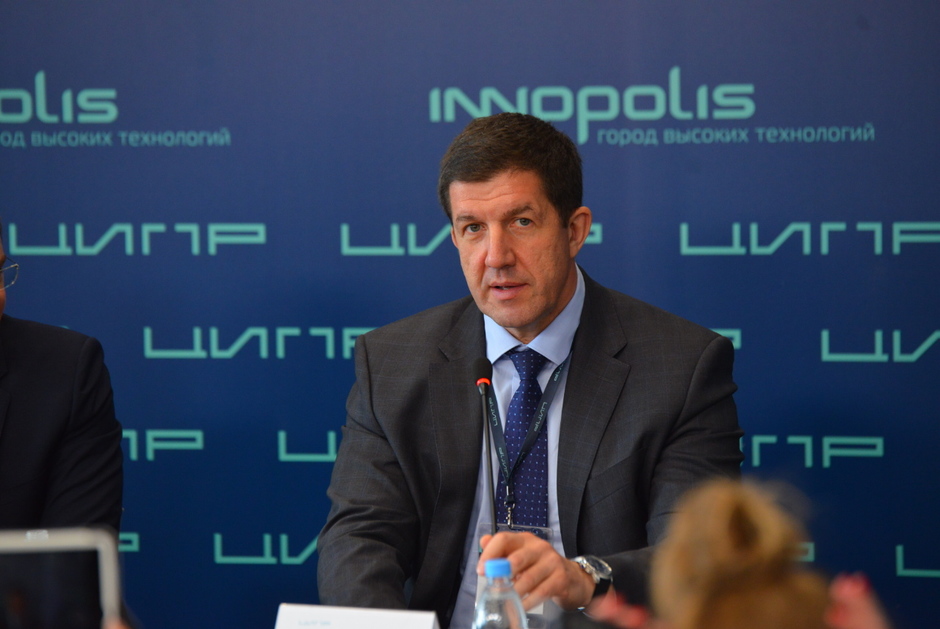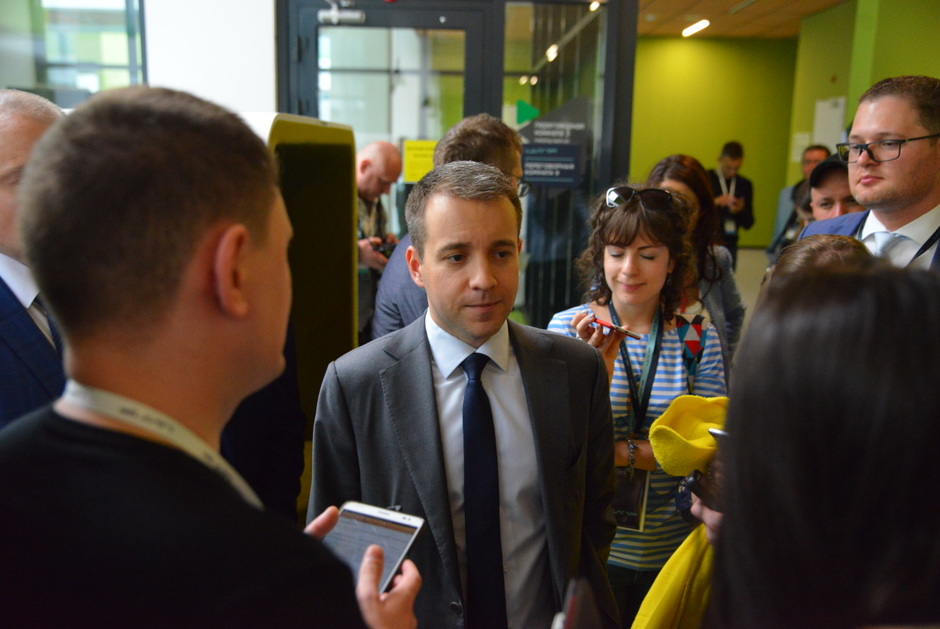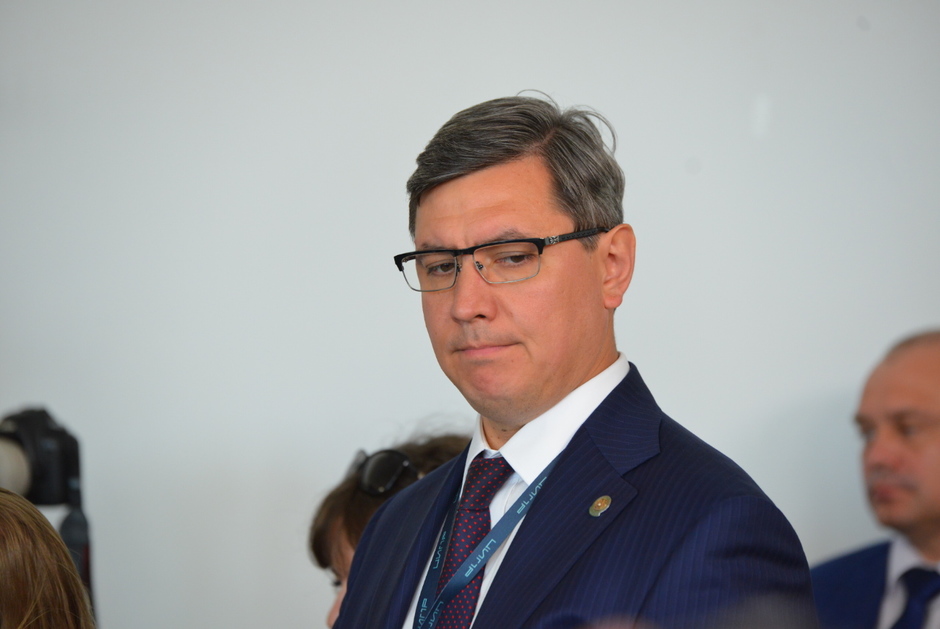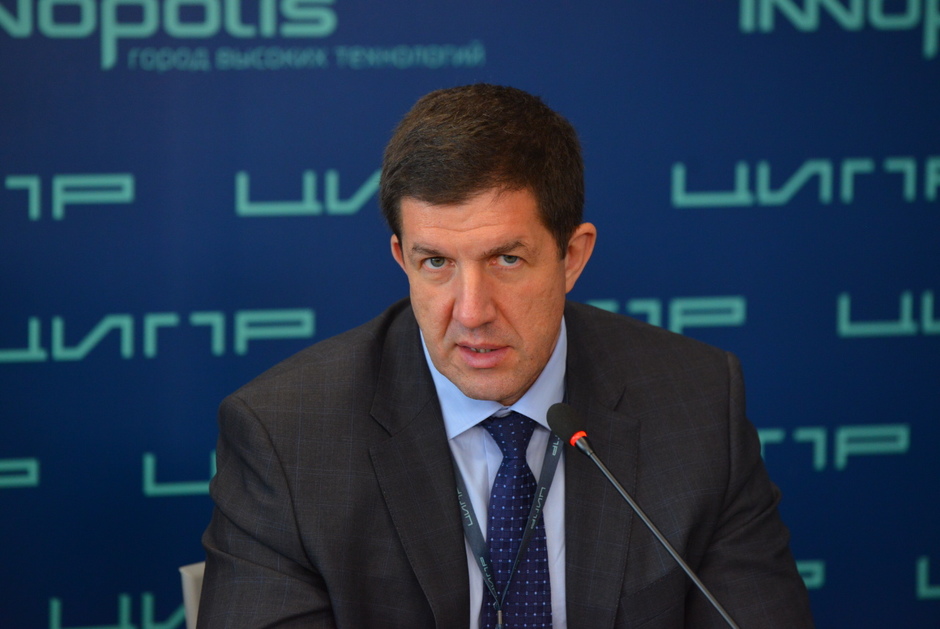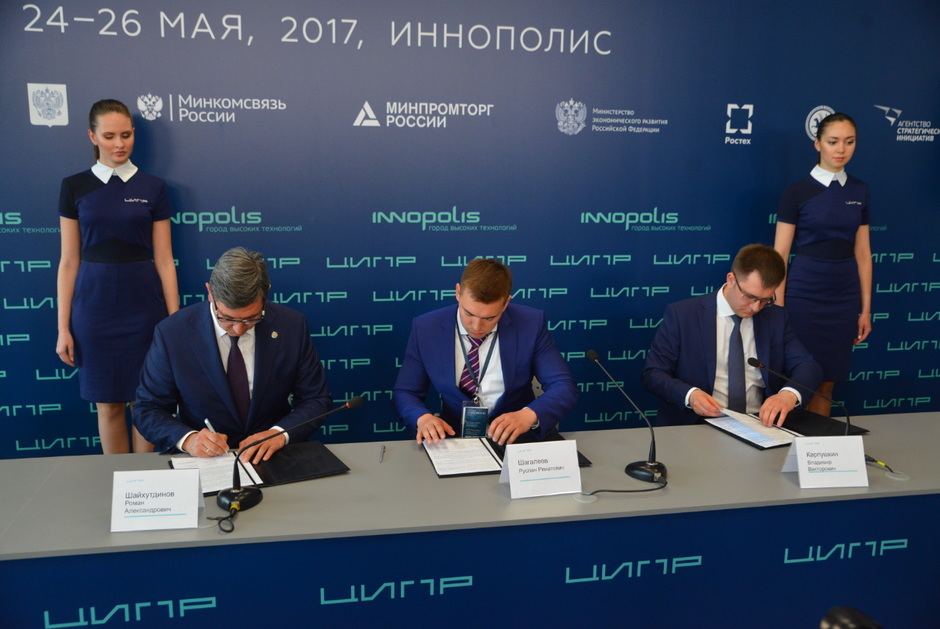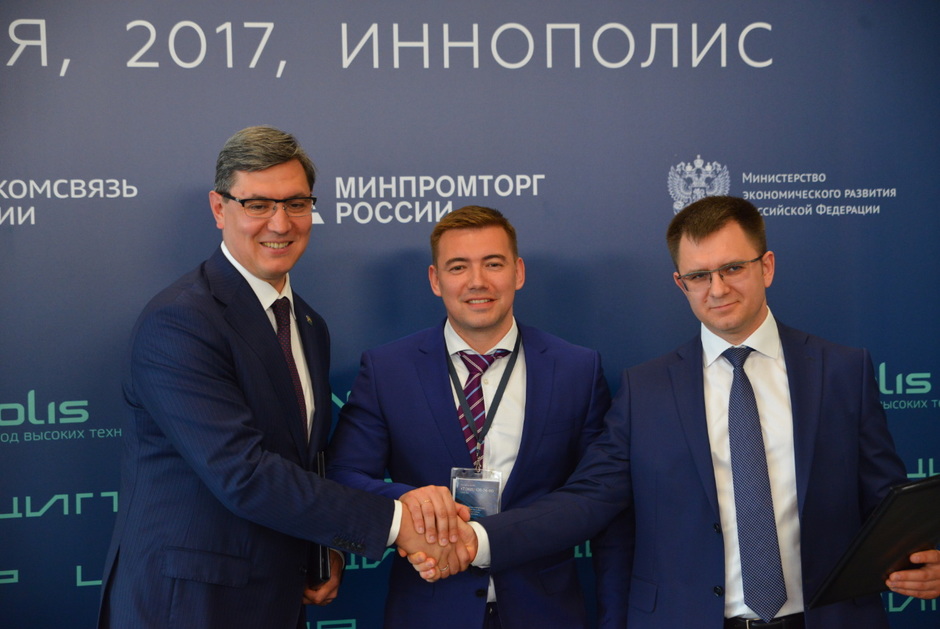Nikolay Nikiforov: ''We were developing very quickly, but the others were even quicker...''
Excursion by Tina Kandelaki’s spouse, ascent of Elbrus and state digitalisation
CIPR conference that Russian Minister of Telecom and Mass Communications Nikolay Nikiforov called the biggest platform to discuss Russian digital economy development programmes until 2024 with experts opened on 24 May in Innopolis. A more detailed examination of the programme was going to be on 25 May in Innopolis within a specially created working group. Vectors to changes of the Russian legislation that, in Nikiforov's opinion, significantly scotched the development of IT in Russia, is one of the important points. Realnoe Vremya tells the details of the opening of the conference and its plans.
Parting words by Nikiforov: ''Ascend to Elbrus!''
CIPR (Information Technology of Industrial Russia) conference opened in Innopolis on 24 May that already became a traditional IT conference held under the aegis of Rostec. ''Father'' of Innopolis, Minister of Telecom and Mass Communications of Russia Nikolay Nikiforov was its participant again.
Nikiforov started the participation with looking over an exhibition at the university of the IT city. Tatarstan Prime Minister Aleksey Pesoshin and Minister of Information and Communications of Tatarstan Roman Shaikhutdinov accompanied the federal minister. Vasily Brovko — Director for Special Commissions at Rostec, founder of Apostol Strategic Communications Centre as well as Tina Kandelaki's spouse was the guide. By the way, Apostol's subsidiary organised the event. It turned out at the entrance to the conference that the company worked bad having made tens of journalists stay waiting for their accreditations. Although tribute should be paid – in general, they got A working with the media.
Undoubtedly, several stands that VIPs visited were dedicated to Rostec's companies. Nikolay Nikiforov was told about the work of the United State Health Information System that was created to improve e-document management and e-health care as well as about information and analytic system in monitoring and control of medicine purchases. Speaking about the information system, Nikolay Nikiforov noted that implementation of this system requires constant amendments to federal laws because applied information technologies are new to health care. It should be noted that the topic of necessity to change the federal law was important during the minister's all the speeches.
Creation of IT infrastructure for the FIFA World Cup and Confederations Cup is another project of Rostec. The state corporation provides events with data communication channel, video conferences, cable TV, stationary and mobile network.
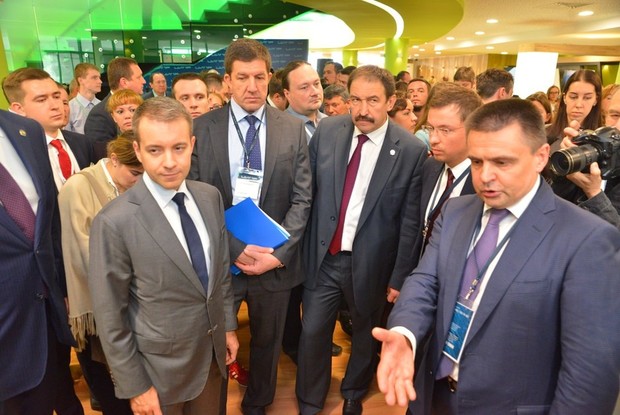
Near the stand with the Russian Federal Nuclear Centre, Rostec's subsidiary, the minister was told about key events in the company like signing of an agreement with Astra Linux and alliance of the company with Tatarstan within Digital Economy programme. They were going to sign a road map with the republic on 26 May and several agreements on realisation of joint pilot projects at the Petersburg Economic Forum.
The delegation was also presented a resident of Innopolis — ICL Techno. A representative of the company told about their latest invention – a micro data centre whose all the components were made in Russia: servers, commutators, storage systems, uninterruptible power supply sources. The company's assembly factory is in Innopolis SEZ.
''Do you work with Kamil Gazizov?'' Nikiforov asked having listened to the presentation.
We should explain that Kamil Gazizov is former head of the apparatus of Ak Bars Holding's director general and director of ITC. Now he is occupying the post of director general of Rostec's subsidiary RT-Inform.
''Yes. We try to have only Tatar workers in the company,'' the ICL Techno representative answered.
''Fine, many thanks. Ascend to Elbrus (Editor's Note: Russian technologies named Elbrus),'' Nikiforov said parting words.
''We are already doing it,'' the minister's interlocutor reacted.
The exhibition of projects was located on two floors. Due to a lack of time, the delegation visited only the first one where it also looked over inventions of Rostec's radio electronic cluster, listened to Bars Group's achievements and National Information Centre – the companies that also belong to Rostec state corporation.

Towards IT future with amendments
Tatarstan Prime Minister Aleksey Pesoshin opened CIPR on behalf of the president of the republic and his government. He noted the importance of the conference and expressed certainty that the work in the event will allow to arrange partnership ties better and help to attract investments in IT.
Then Minister of Telecom and Mass Communications of Russia Nikolay Nikiforov drew the attention of the guests of the conference. The administration of the ''hospitable'' republic and companies presented at the conference were thanked.
''I think we can create such a platform only working together where we are going to stage probably the biggest discussion of Digital Economy programme with experts this year. The programme is created as carrying out the president's December instruction,'' the minister cut to the chase after a welcome speech.
Later Nikolay Nikiforov told about the very digital economy development programme of Russia until 2024 in detail.
Among key goals, he called the necessity to create and good environment to develop IT and legal base for it. A specially created working group of the Presidential Economic Council was supposed to discuss the programme in detail on 26 May. Russian president's two aides who supervise this topic – Andrey Belousov and Igor Schegolev – were expected in Innopolis to participate in the discussion.
The minister called environment, platform and technologies as well as markets and economic sectors basic things to the develop the sector. Created Digital Economy programme, in turn, will be focused on two layers – environment with personnel, infrastructure, legal and regulatory environment, security and management system and platform with technologies, which is a digital foundation.
The role of the state will end with scientific inventions. In the ministry's opinion, creation of centres of competence and certain platforms need to be sold to business. Nikiforov says that leading companies that are already in the market will deal with it.
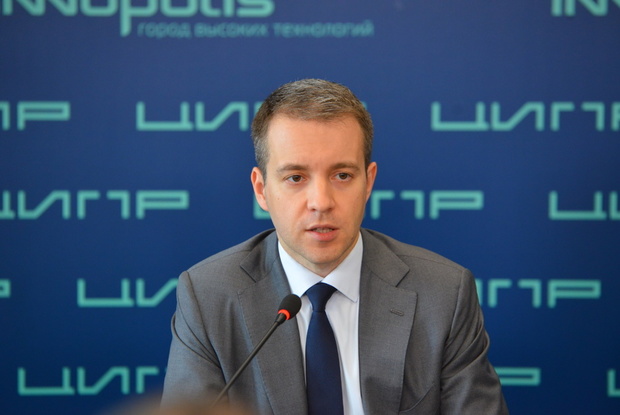
It is also necessary to create a special legal regime that will be based on small amendments in bills. It will be able to create pilot projects quickly. They will enable to correct the law without waiting for global changes.
As for personnel, they offer to reconsider traditional approaches to organisation of labour relations and create a versatile system. They propose to coordinate efforts of key players, arrange ties between enterprises, universities and research centres, stimulate attraction of investments to organise research and inventions.
Of course, information infrastructure is very important. According to Nikiforov, despite optimistic indicators, a serious work is needed in Russia in general. Speaking about perspectives of 5G, the ministry noted ''it will enable us to service a dramatically big number of connected devices'' per one square kilometre.
In the context of events happening in Russia linked to virus attacks and communication failures, cybersecurity is becoming more important. The ministry also needs to develop it.
Nikiforov named the distribution of e-state services whose development remains a priority a revolution. The last task is about smart cities – we are speaking about existing cities that work better thanks to modern technologies.
The minister said digital health care that the programme pays great attention to is the last task in line, but not in terms of importance.
In general, the created programme will be a kind of development vector. And certain tasks with the mentioned budget and performers will be defined every three years. Meanwhile, the president of Russia is waiting for the strategic document of the programme at the beginning of June.
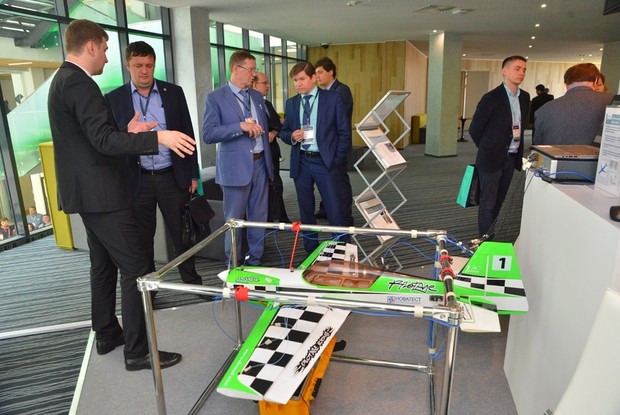
IT penetration as salvage from demographic decline
First Deputy Minister of Industry and Trade of Russia Gleb Nikitin noted that development of digital industry and development of industry in the country are closely connected. The main thing here is the necessity to switch to 4.0 Industry whose main components is industrial Internet of Things. IT solutions are needed to switch to it. Nikitin said CIPR was a place for their development.
Deputy Minister of Economy of Russia Oleg Fomichev already told about digitalisation in all the spheres of life. He said the fact that the number of working population will start reducing by 600,000 people a year from the next year was one of the key challenges of Russia. Digital economy will allow to significantly reduce the influence of the demographic factor on the economy.
''In our situation, the subsequence of the demographic trend and digital economy gives us an opportunity to handle corresponding challenges with few social effects,'' the deputy minister noted.
Transformation of the state management is another thing closely connected with digitalisation. According to Fomichev, the concept of the state where it will become an IT platform is quite widely discussed. We can already say that Russia will have an opportunity to switch to control methods that are not linked with field checks and reports by 2025. However, the transition to the online mode inevitably causes risks – particularly, an increased number of cyber threats.
Among the honoured speakers at the conference there was Mikhail Oseyevsky, President of Rostelecom, who said that the company has identified several strategic directions related to the digital industry: creation of infrastructure, development of e-government and public services, transition to the new economy model 4.0 (here the company has set for itself three sectors: energy, oil & gas, and mechanical engineering) and focus on cybersecurity. Oseyevsky said that Cybersecurity Center of Rostelecom provides security for seven largest banks of Russia and a number of large companies.
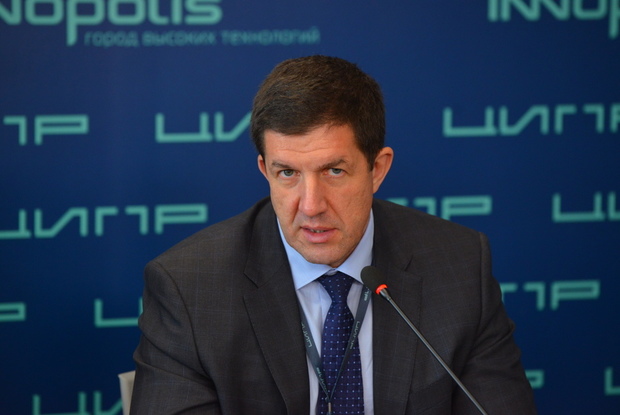
''We were developing very quick, but others were developing even quicker''
At the end of the plenary session, Brovko asked the participants a few tricky questions. Most interesting was his first blitz-question addressed to Minister of Informatization and Communications of Russia.
''Nikolay Anatolyevich, in 2012 Russia took the 39th place by the level of development of the digital industry. In fact, five years on, we are on the same 39th place. Here begs the question as many countries have made very great strides over the years. Do you think the fact that we were on 39th place, and not, for example, on the 47th or 54th, is it a success or could be more? And if possible, what have prevented to make a qualitative leap over the years?''
''I will try to answer briefly, in fact the question is almost from the philosophical area. The fact that we take the same place doesn't mean we haven't evolved. We were developing very quickly, but others were developing even quicker. We have made a breakthrough in almost all areas — infrastructure, and so on. But we need to develop even faster because this is the key to our global competitiveness,'' responded the minister.
Among the factors that prevented Russia to develop faster, the minister called the need for more decisive adjustments to the regulatory base. Now this will be done in the framework of the presented program until 2024.
''Our key task that I see is that we should stabilize these approaches and work ahead of the curve. By 2018, all the key amendments to the federal laws should be adopted, decrees of the government in order what we see as the planning horizon of 2024 became legally possible in 2018,'' said Nikiforov.
